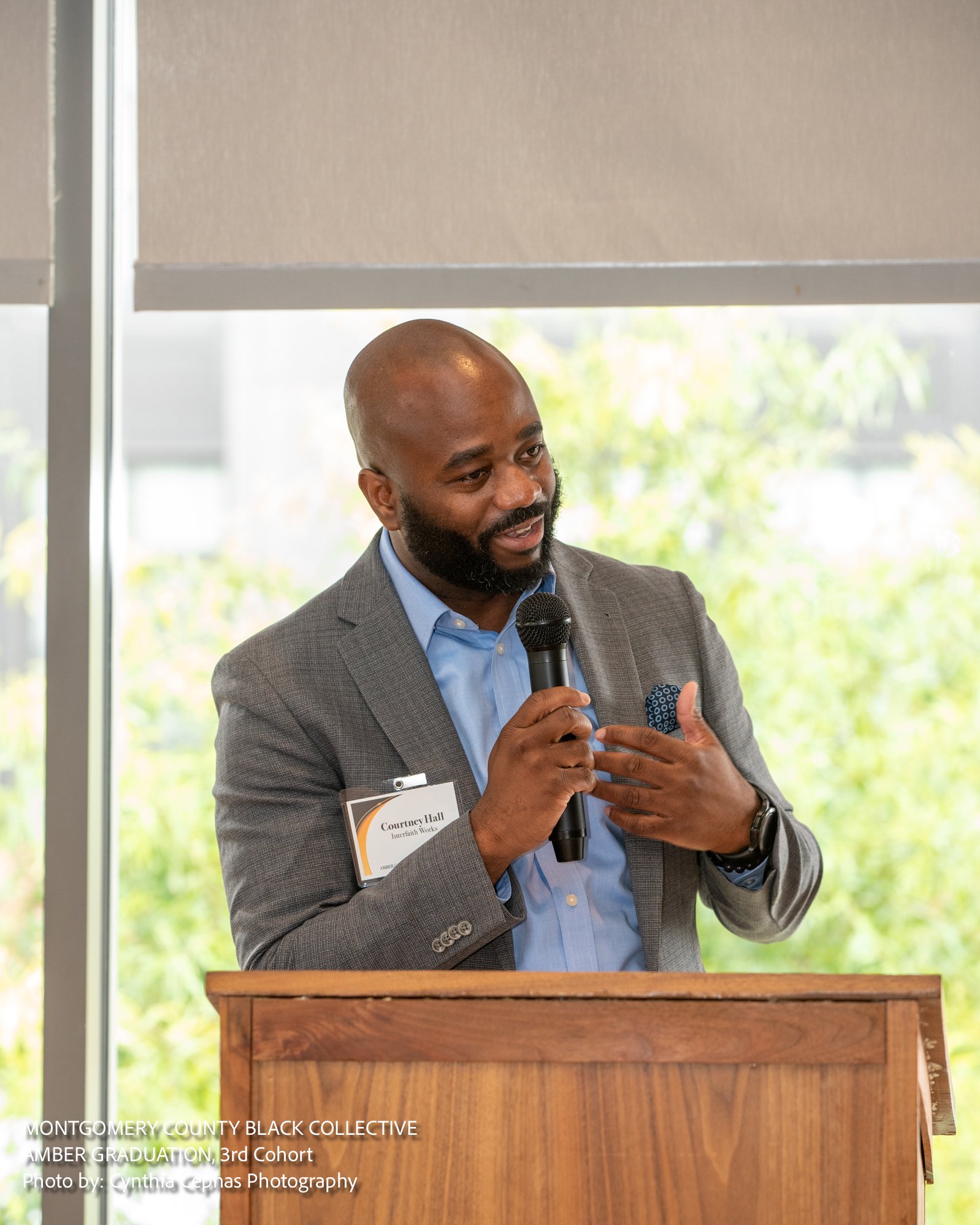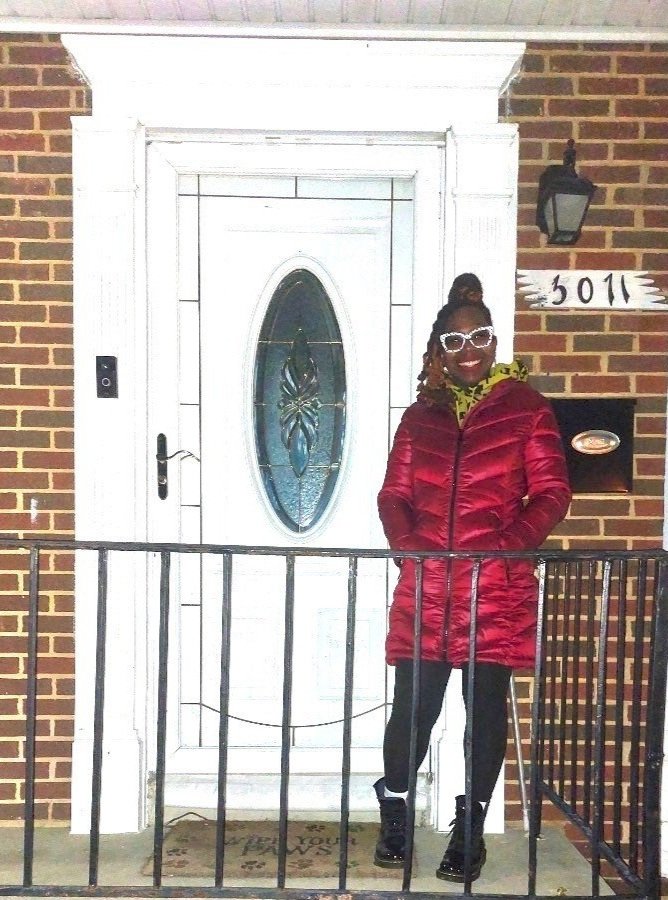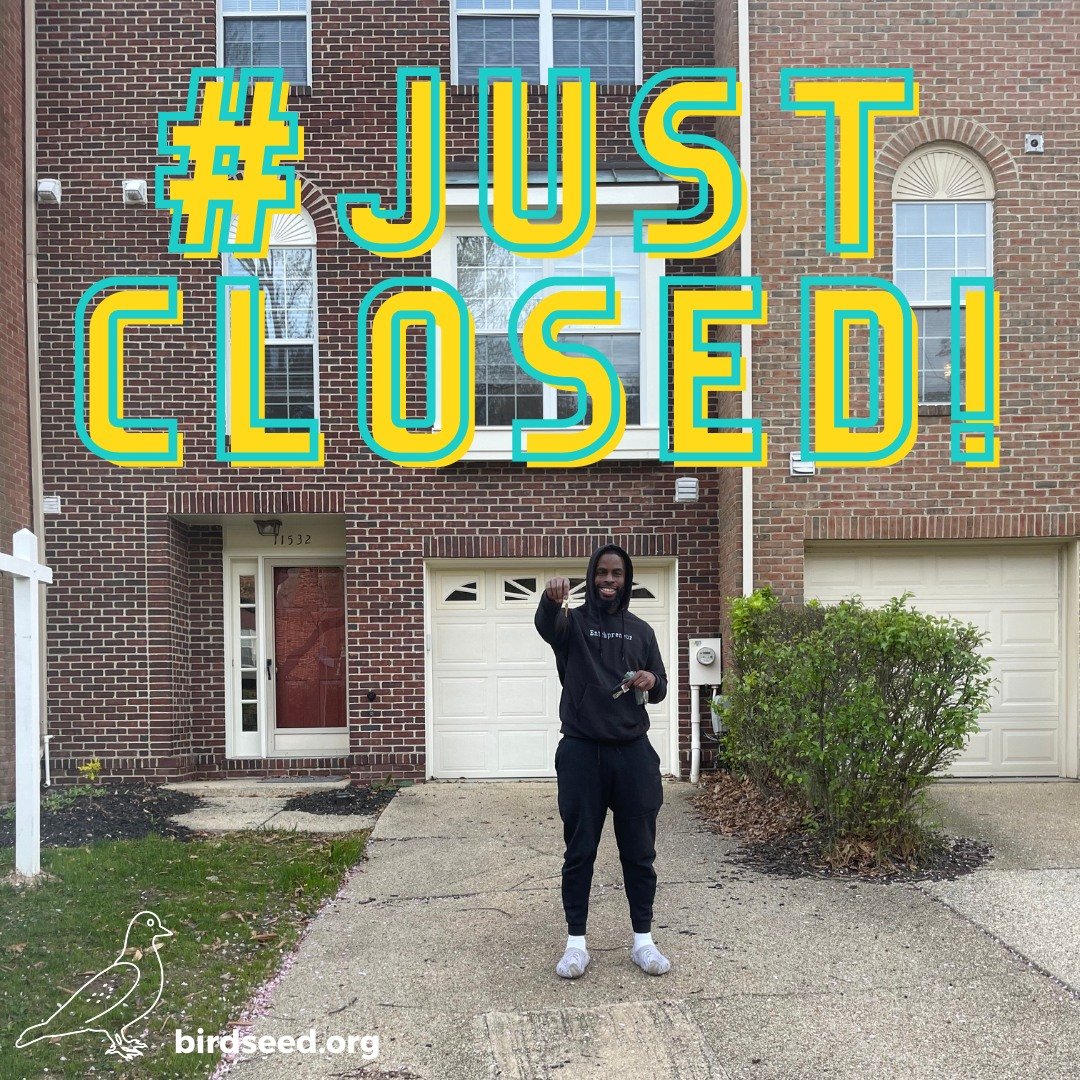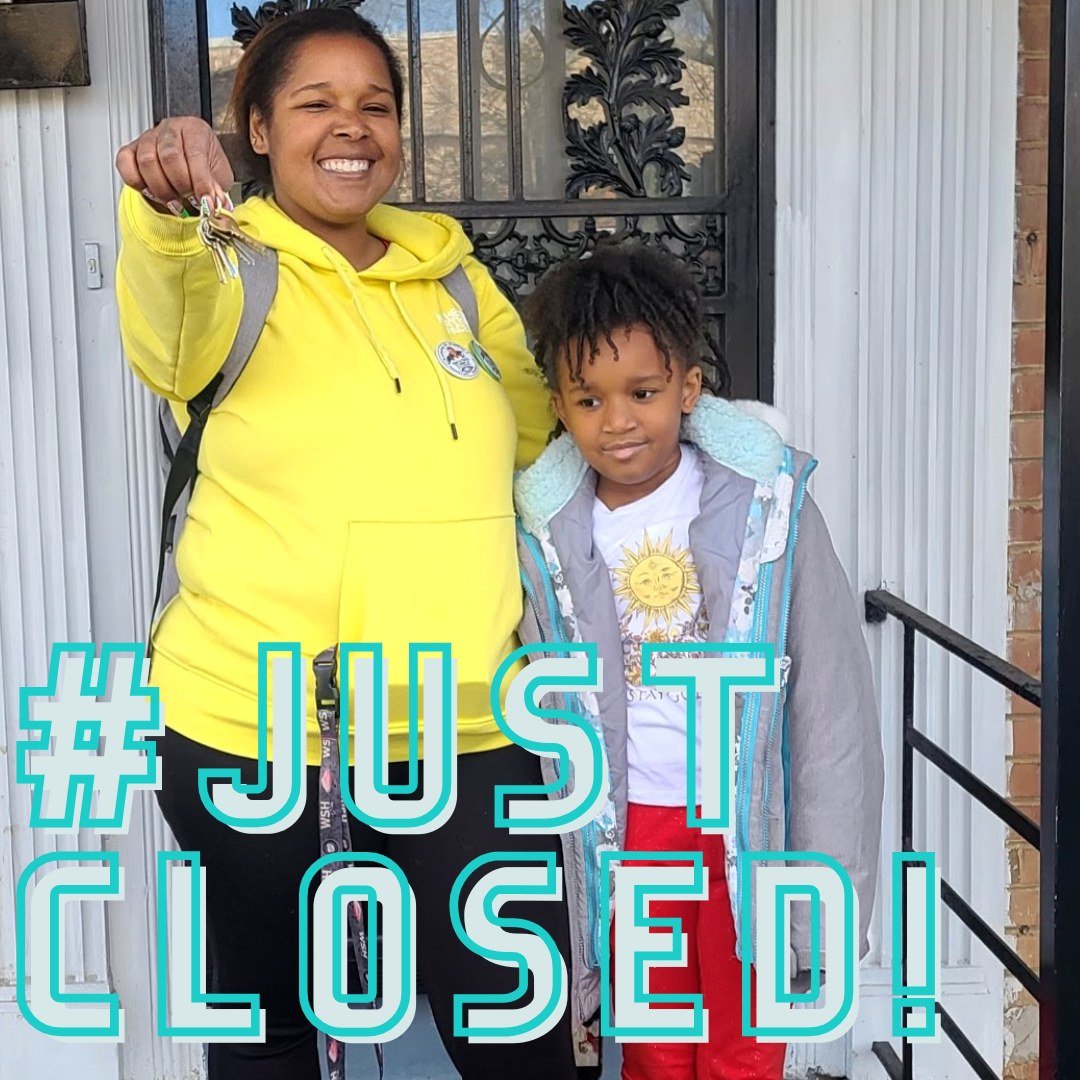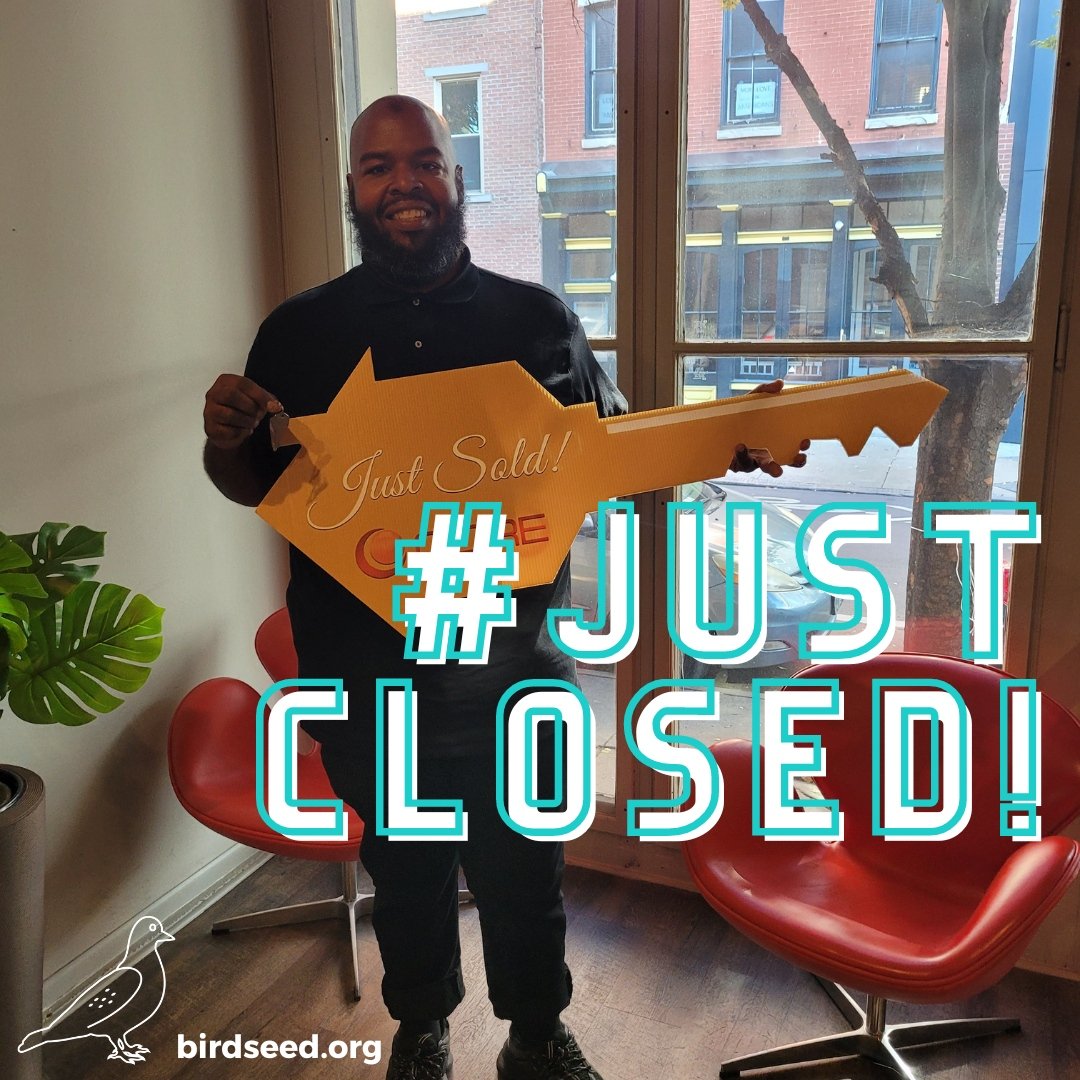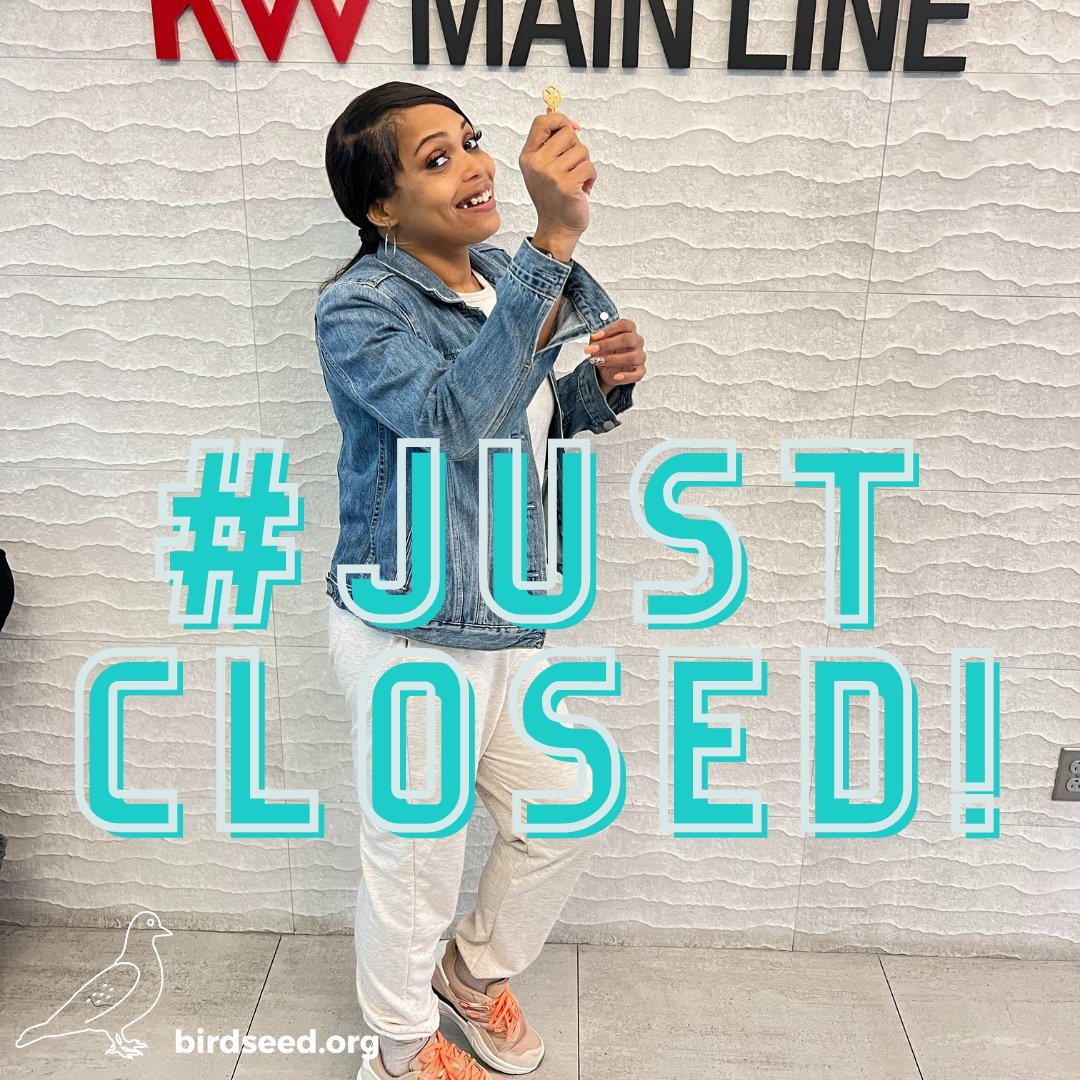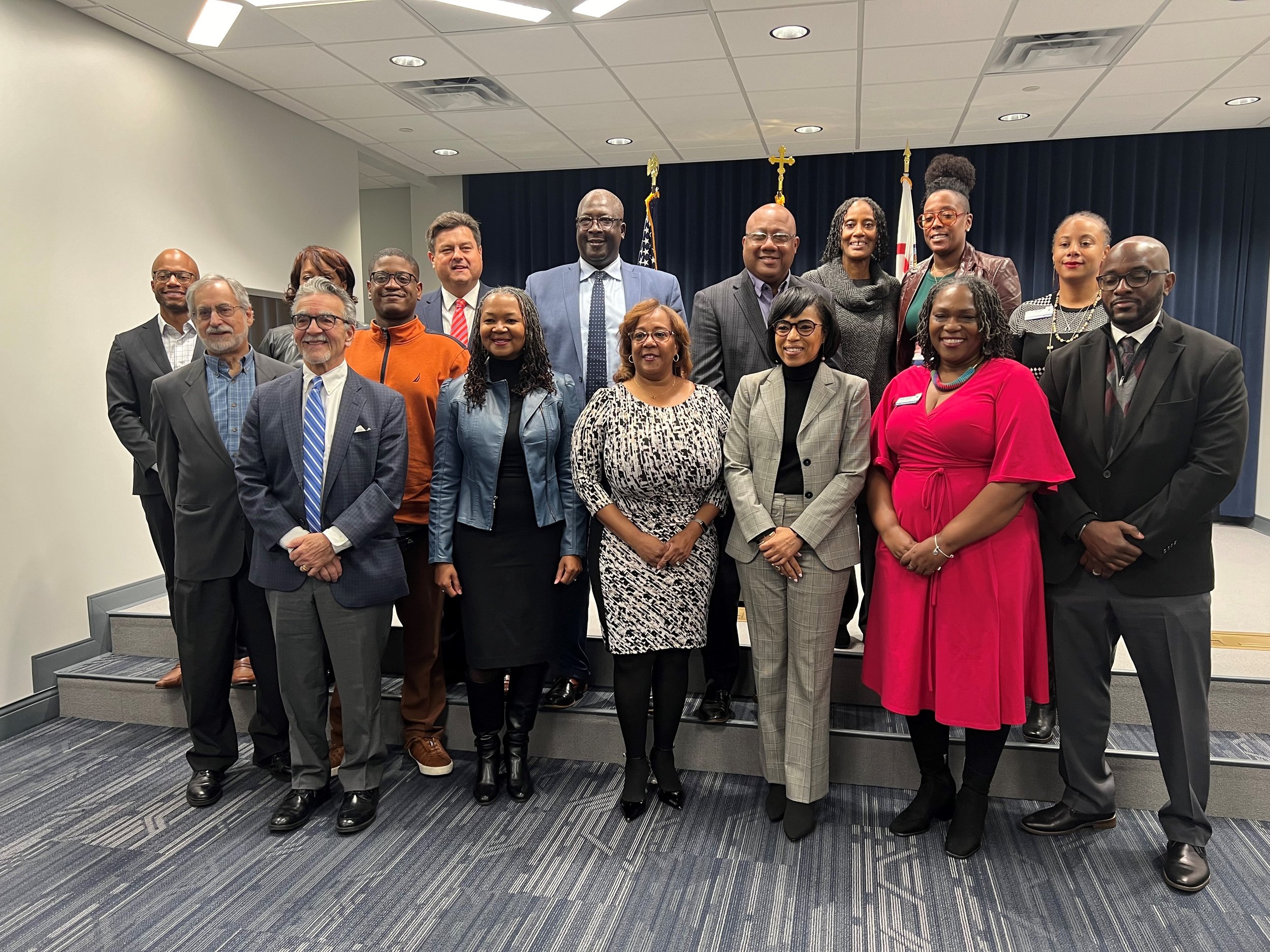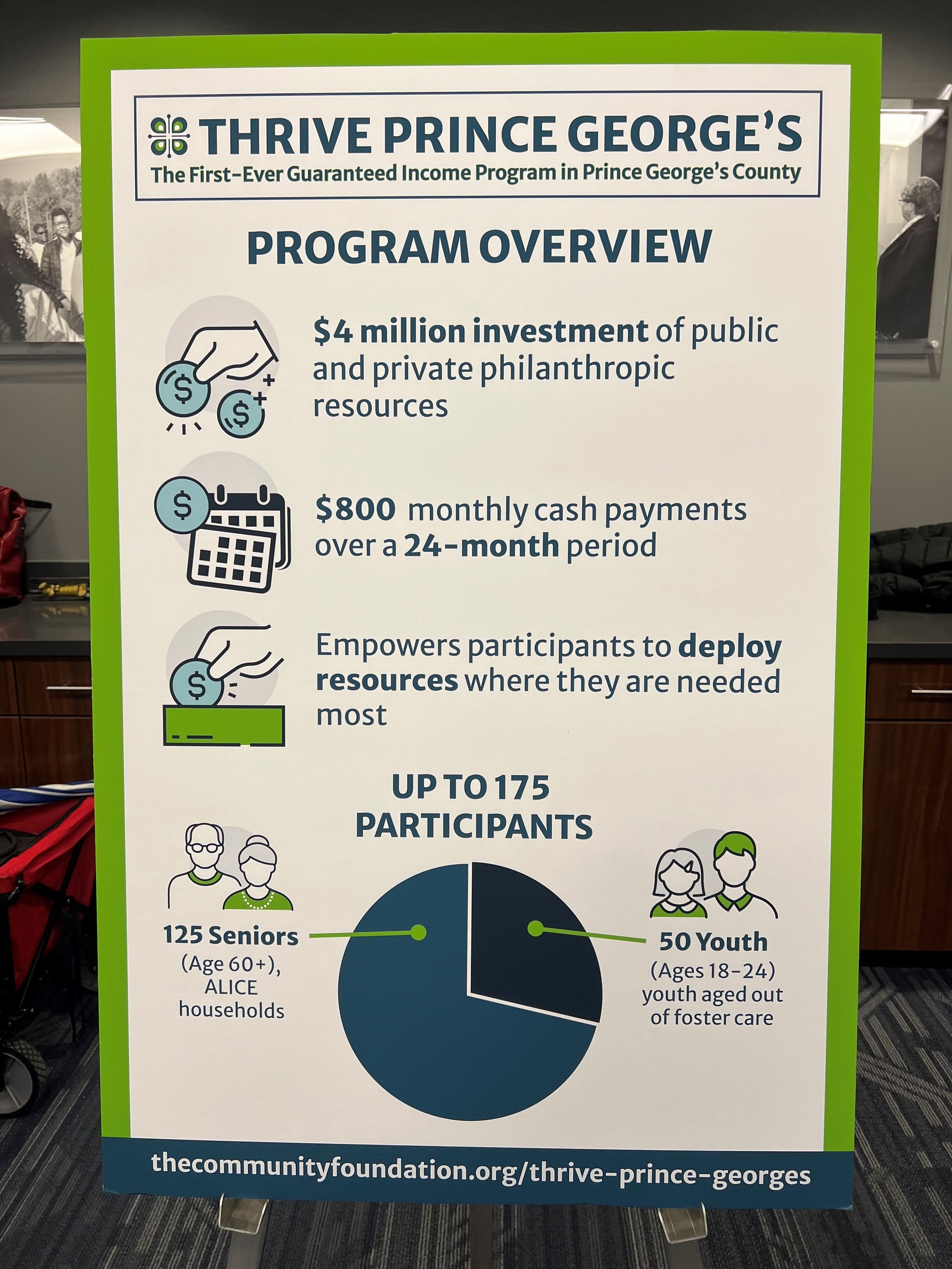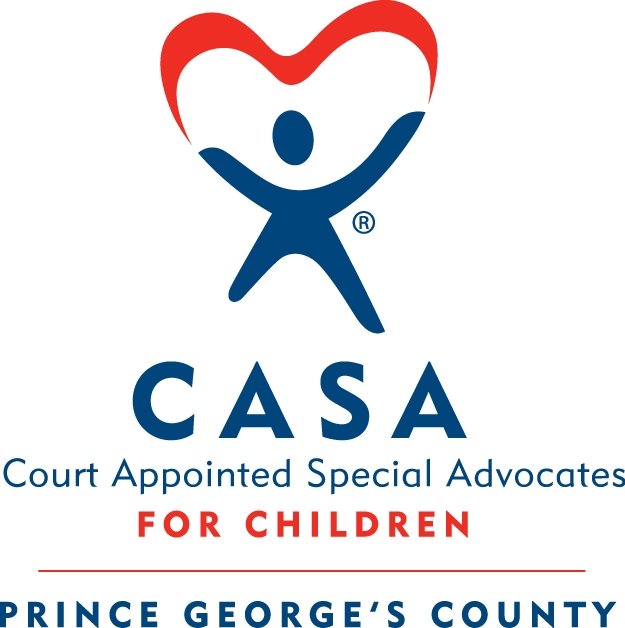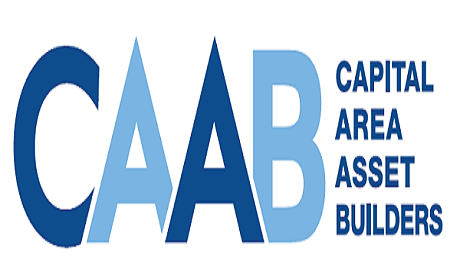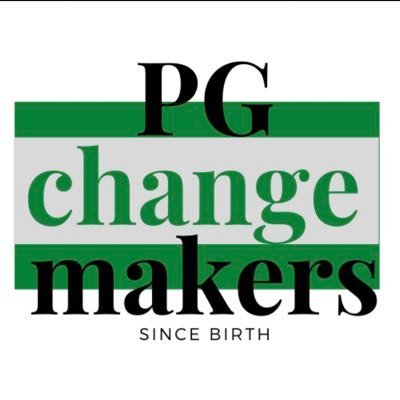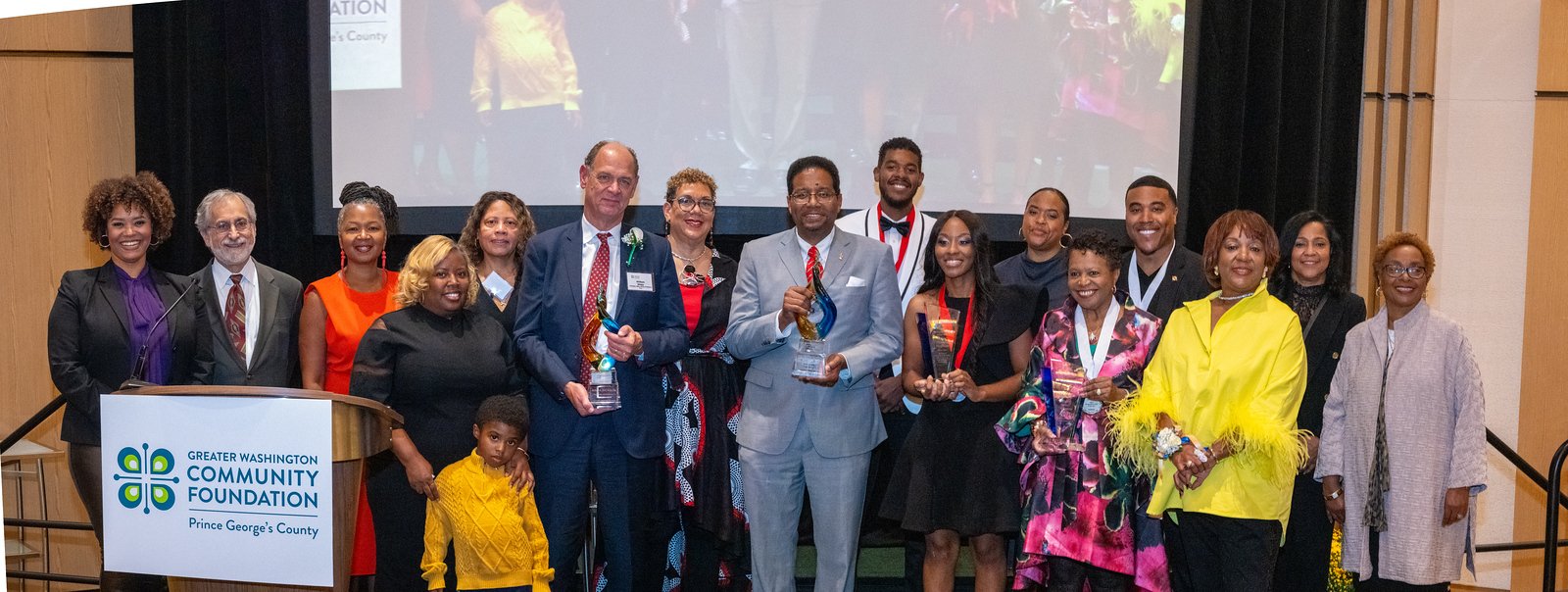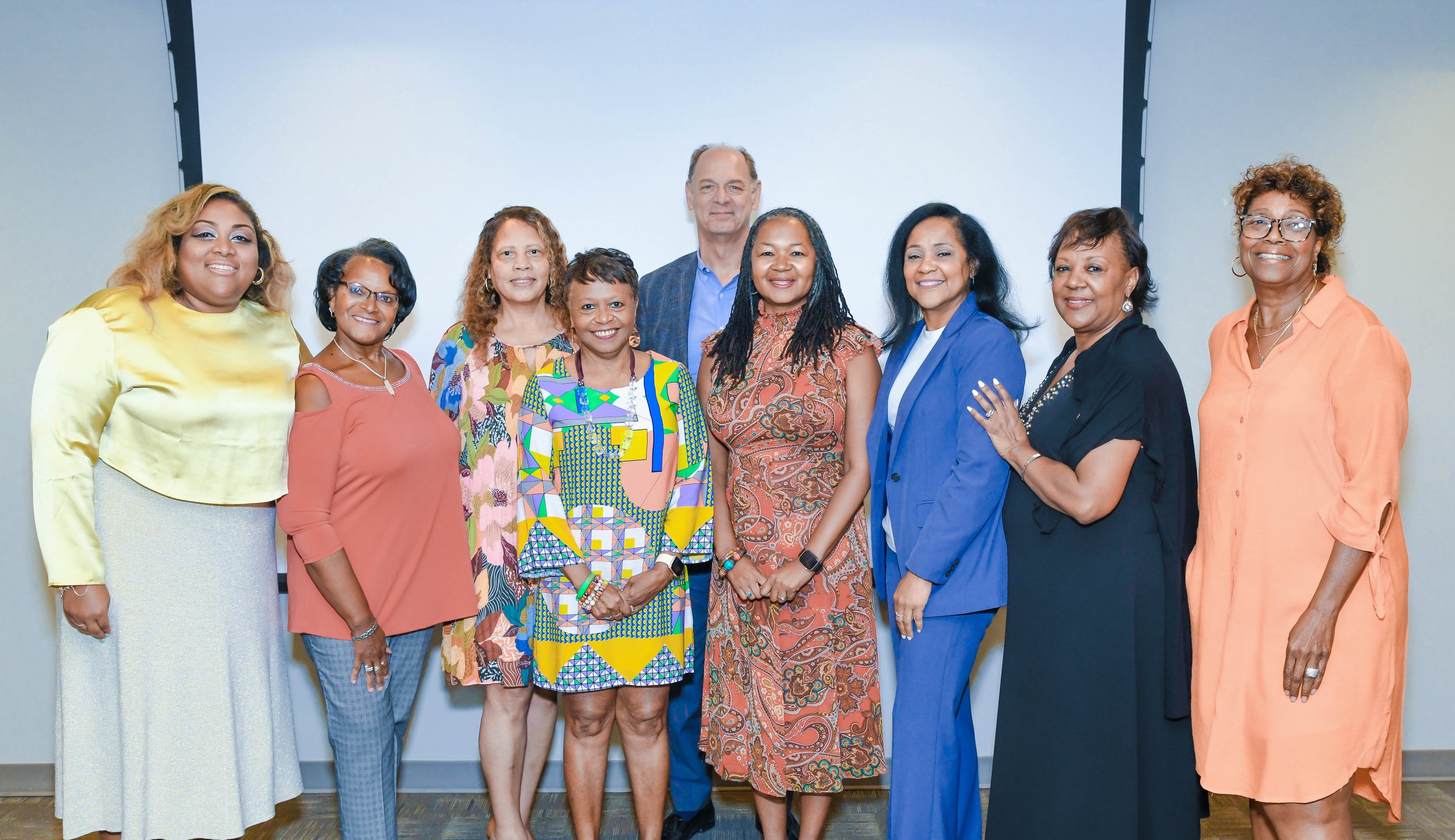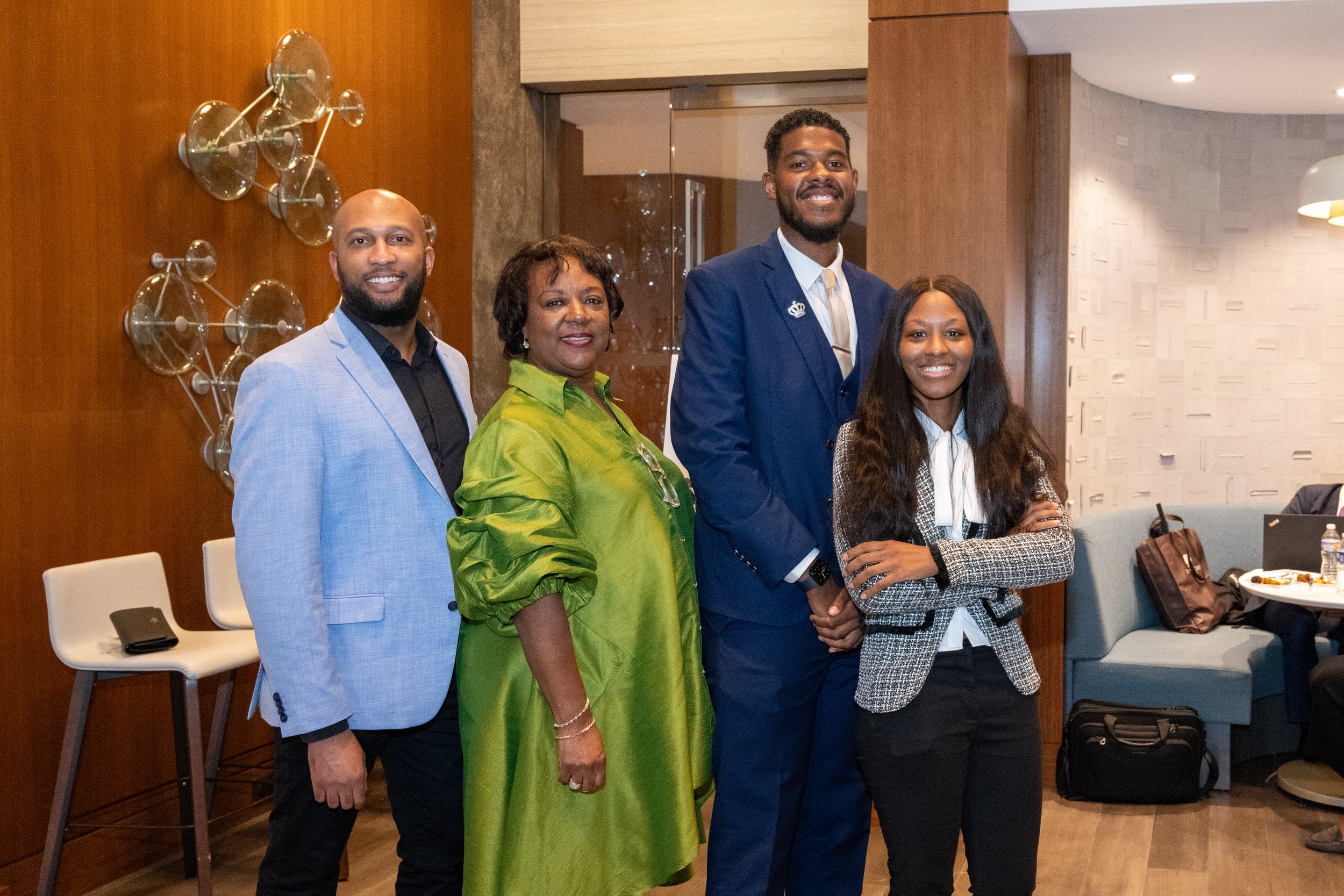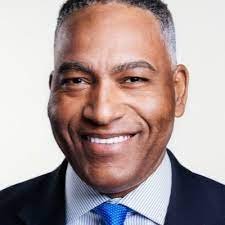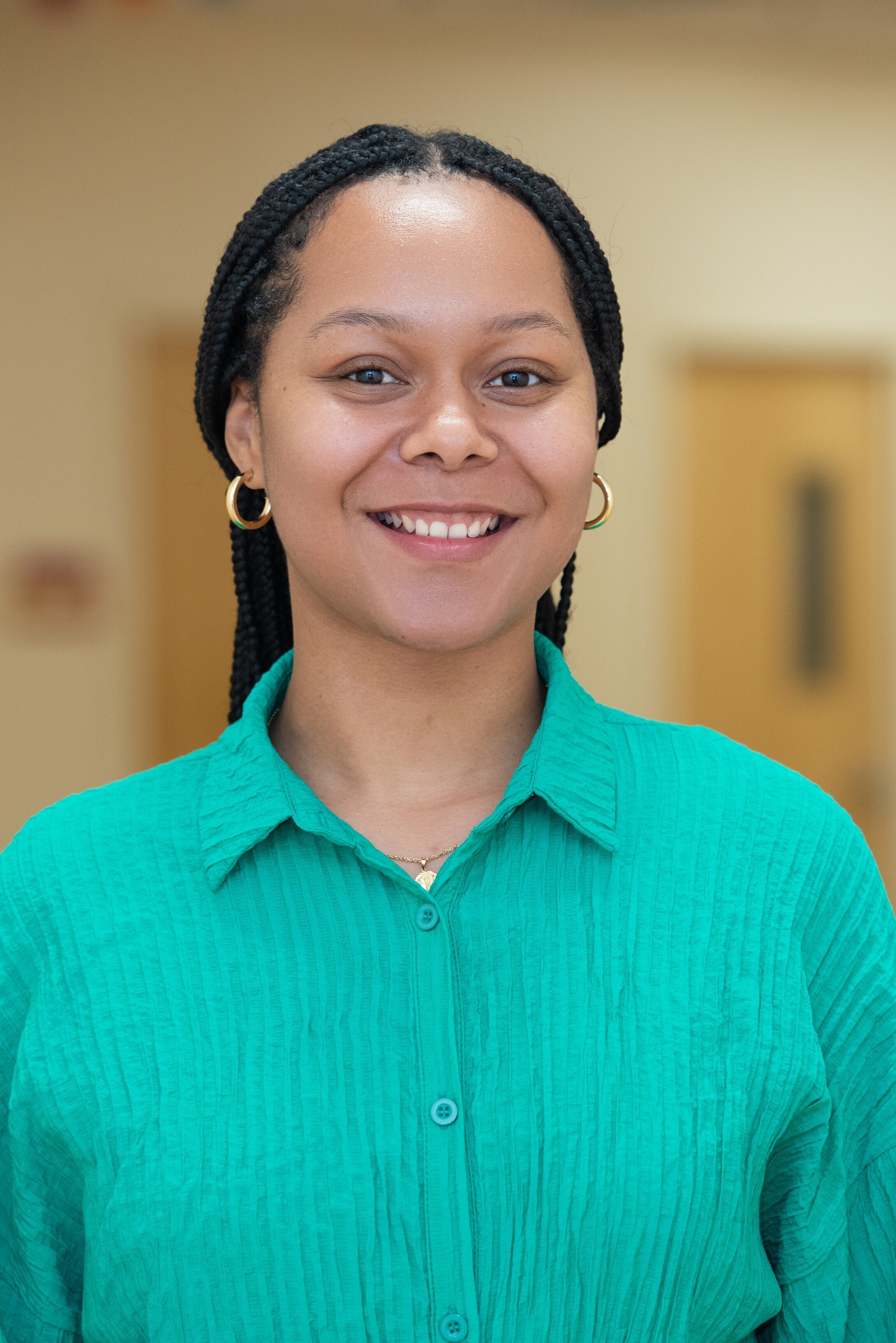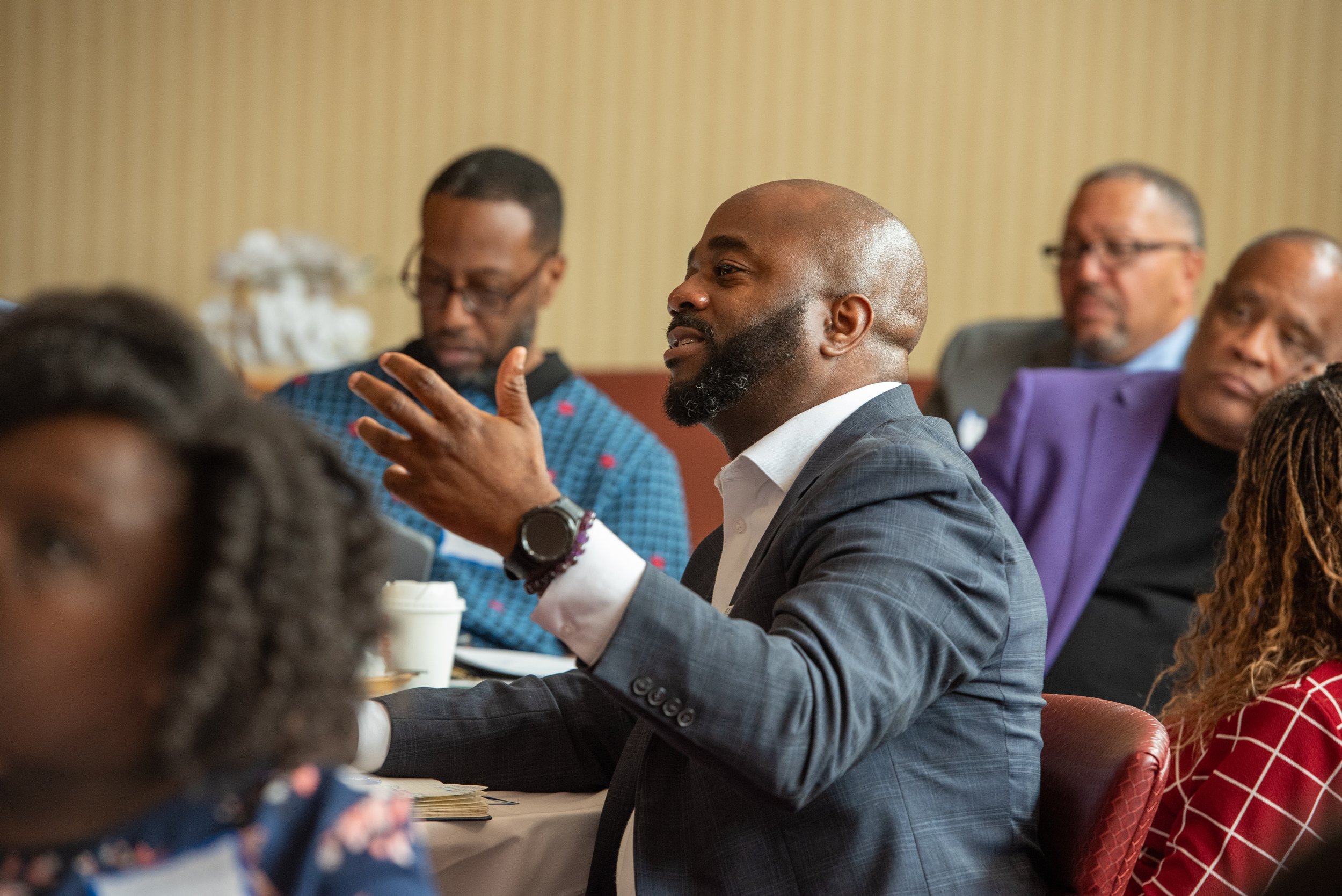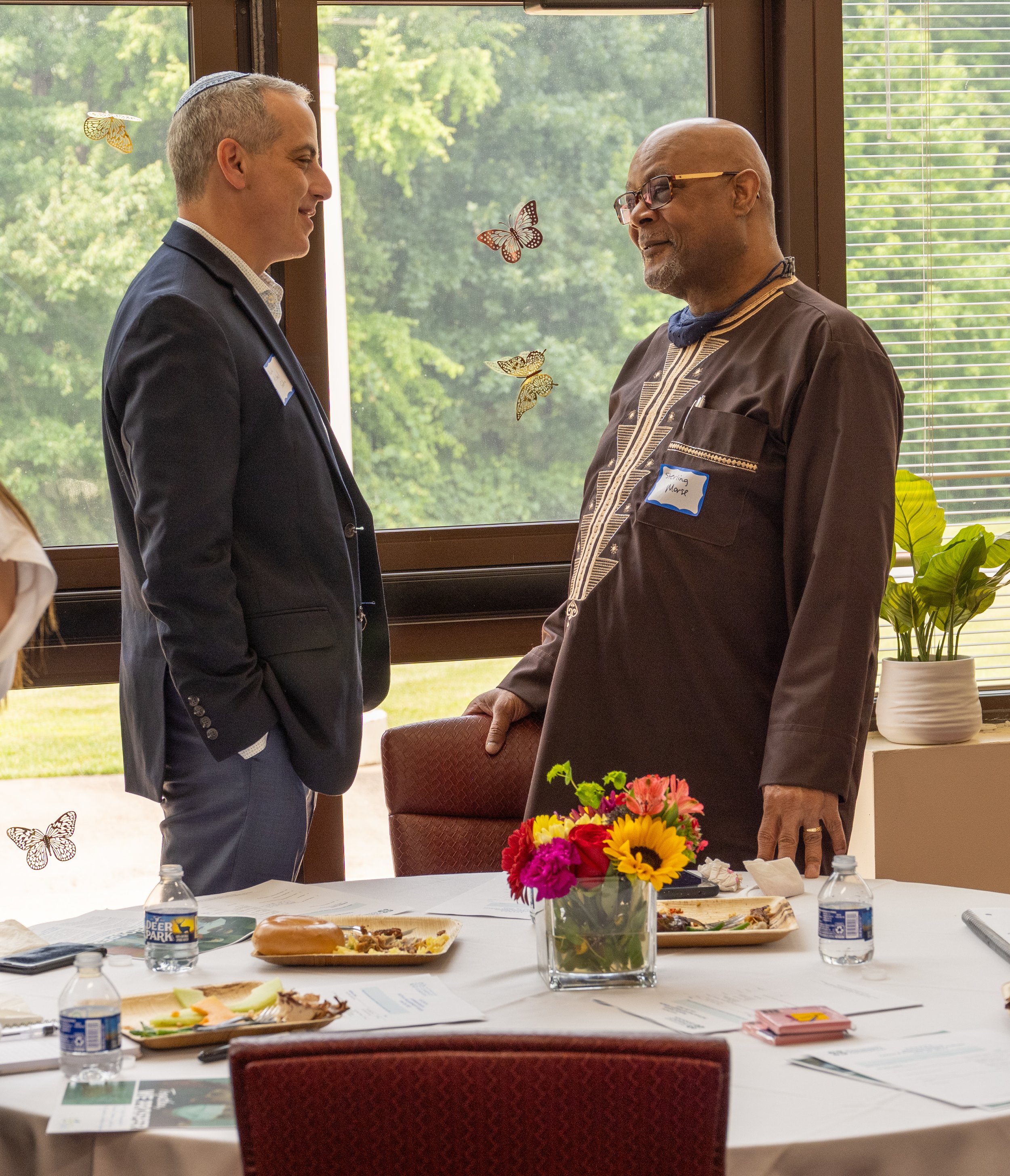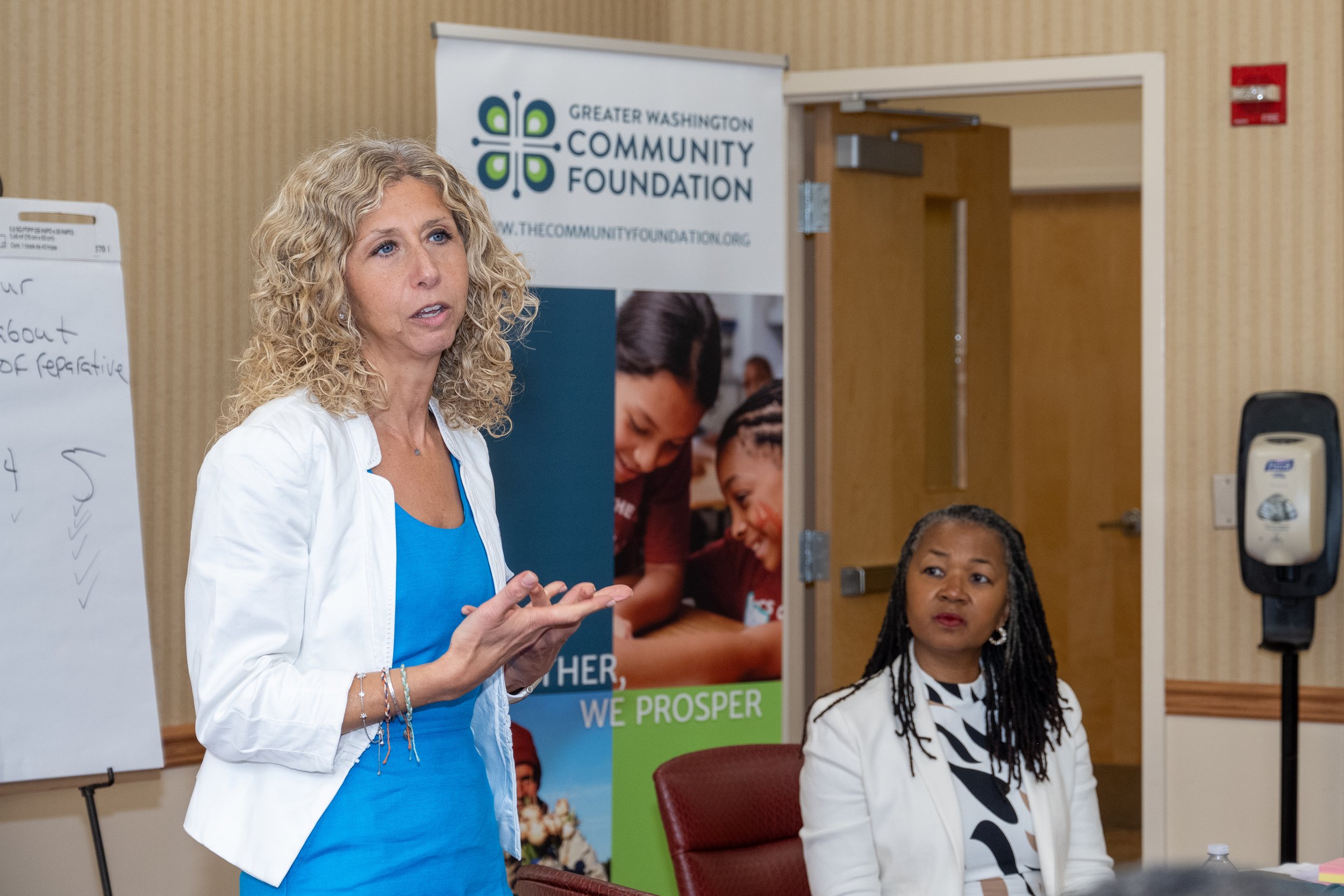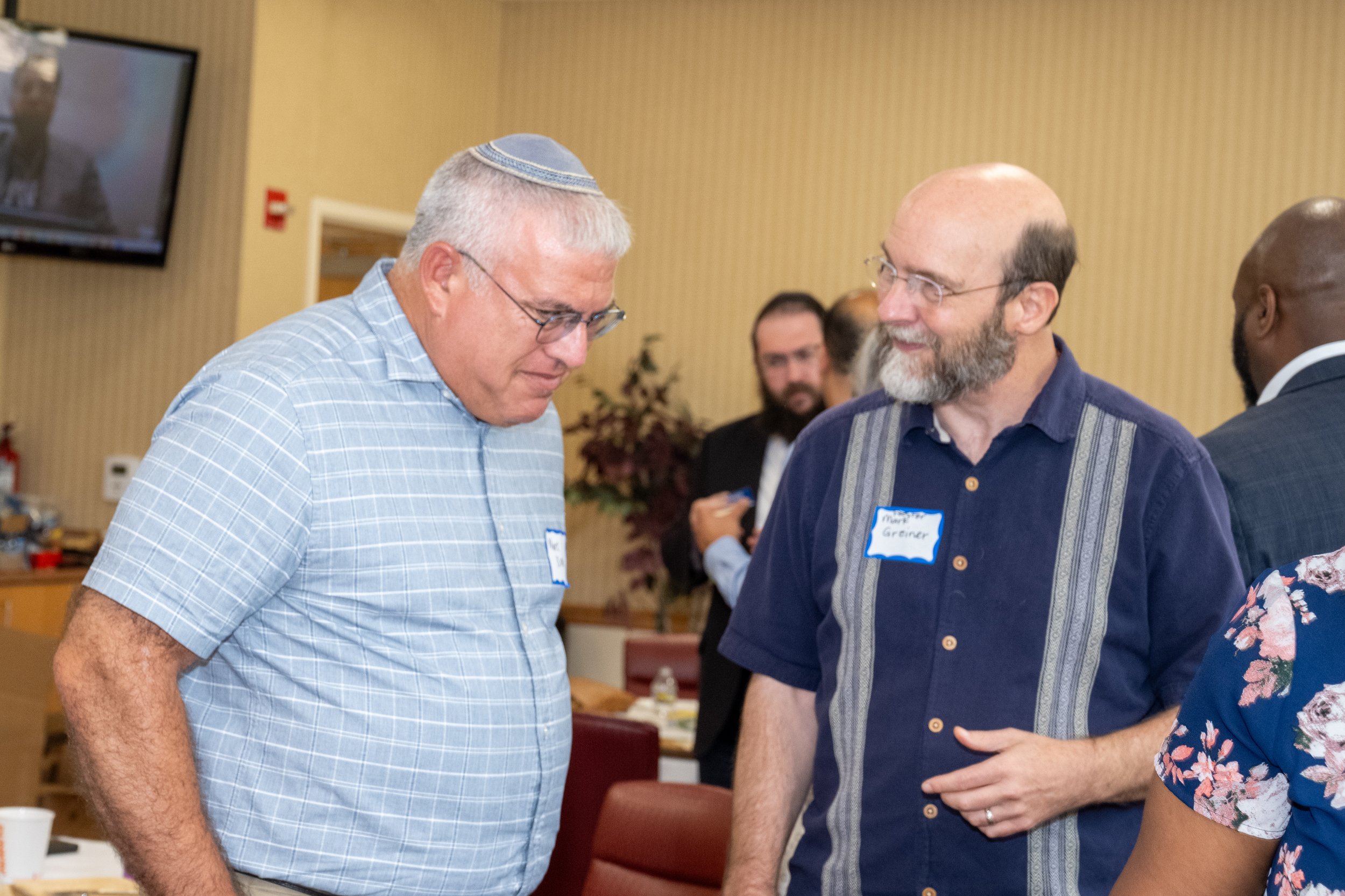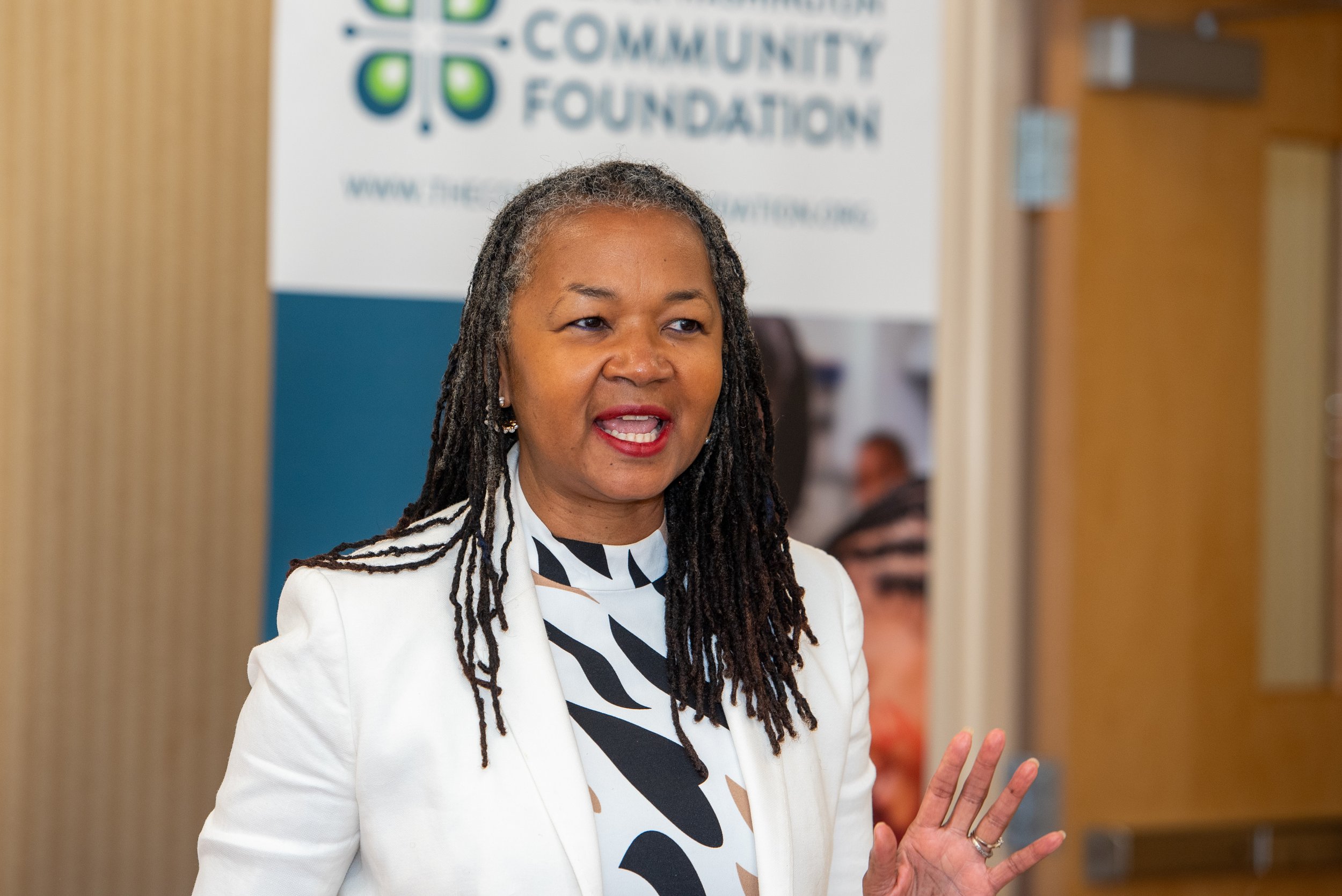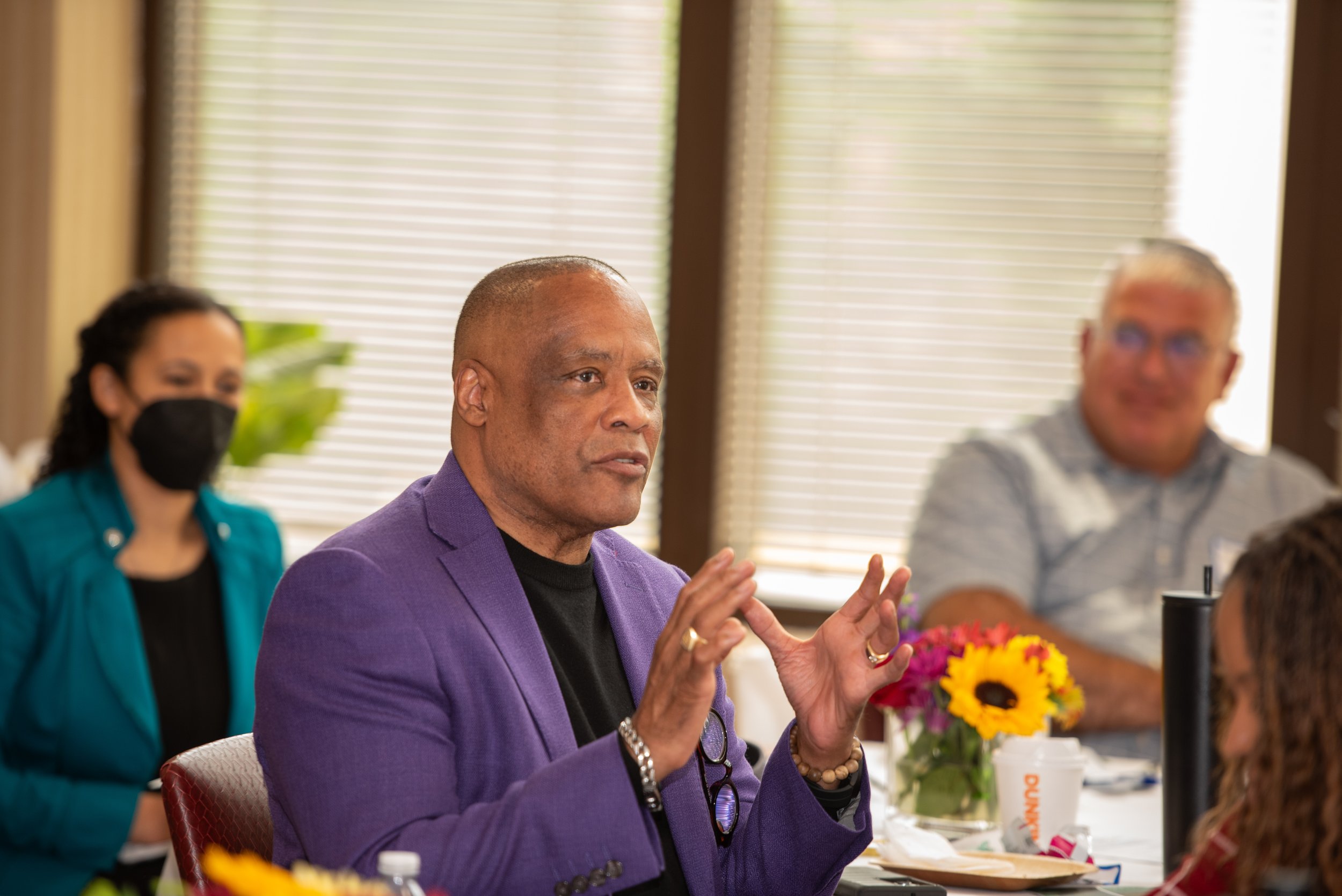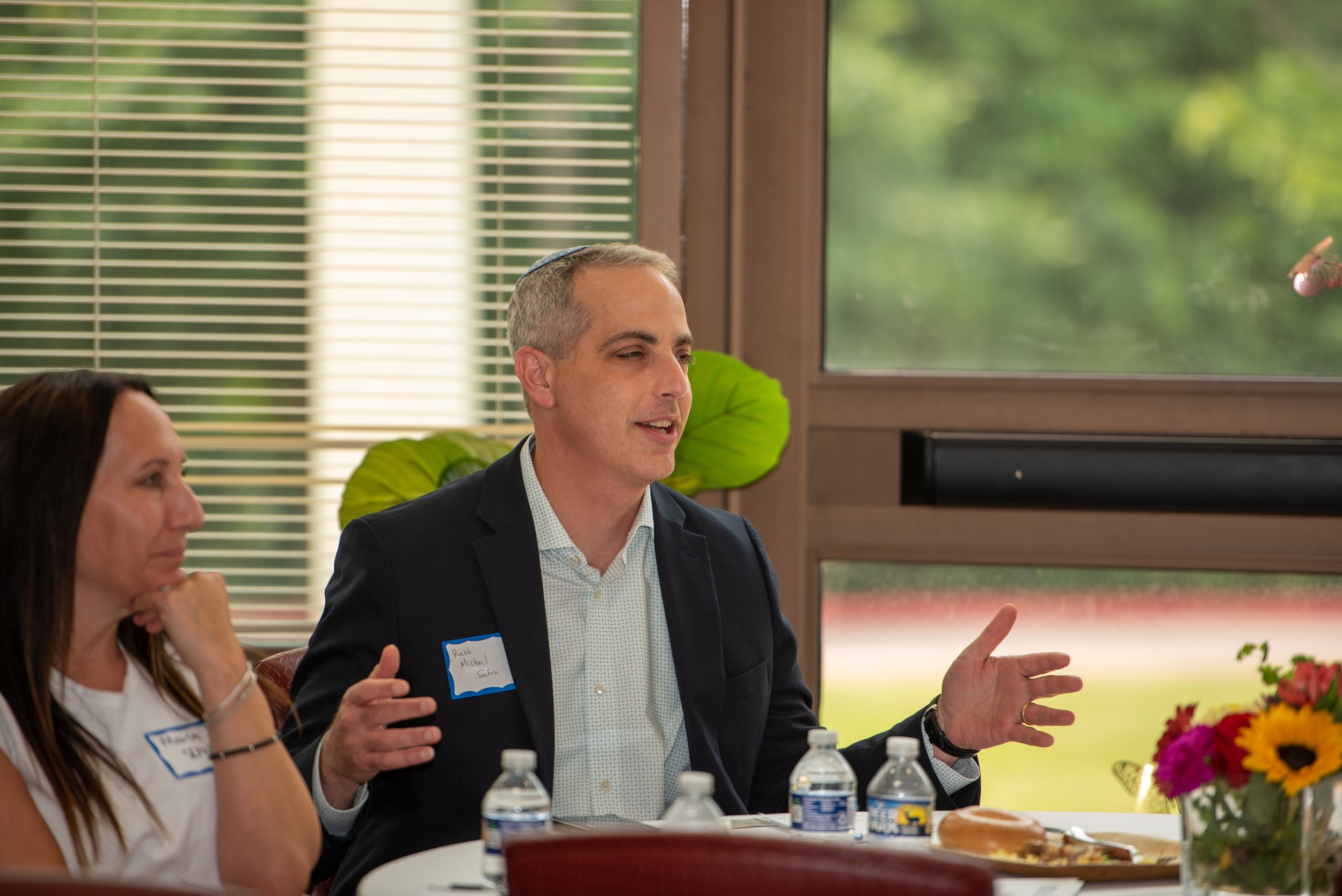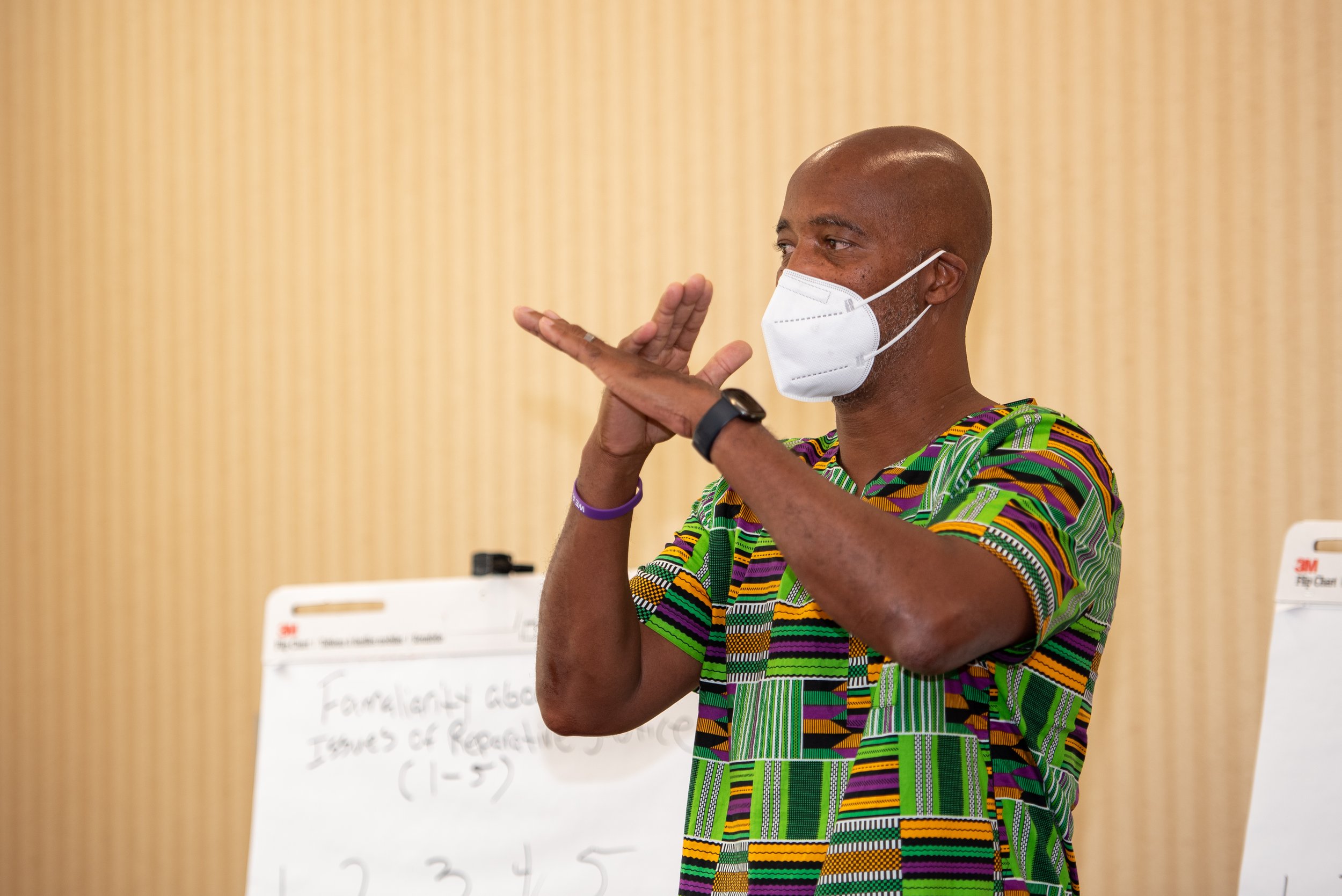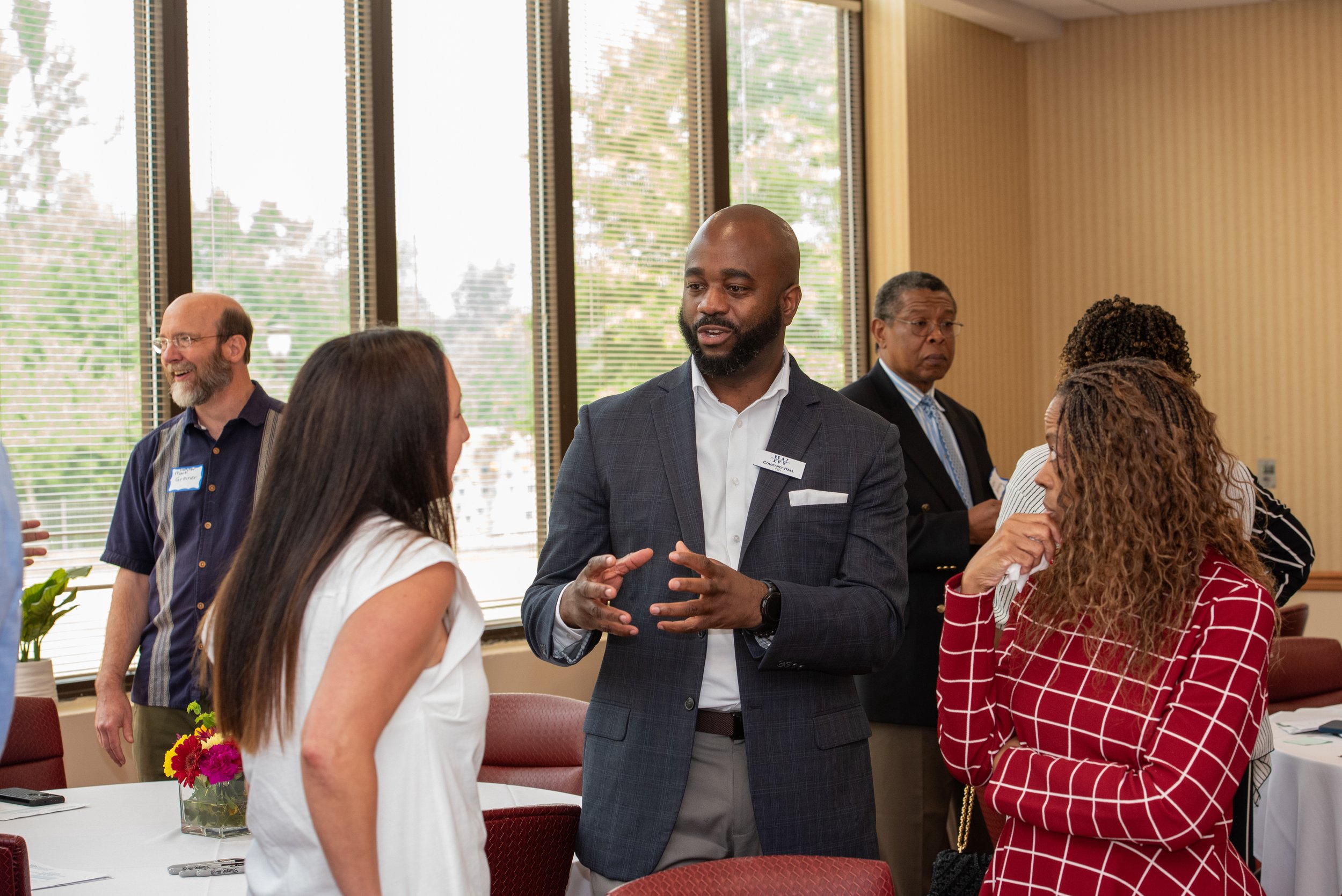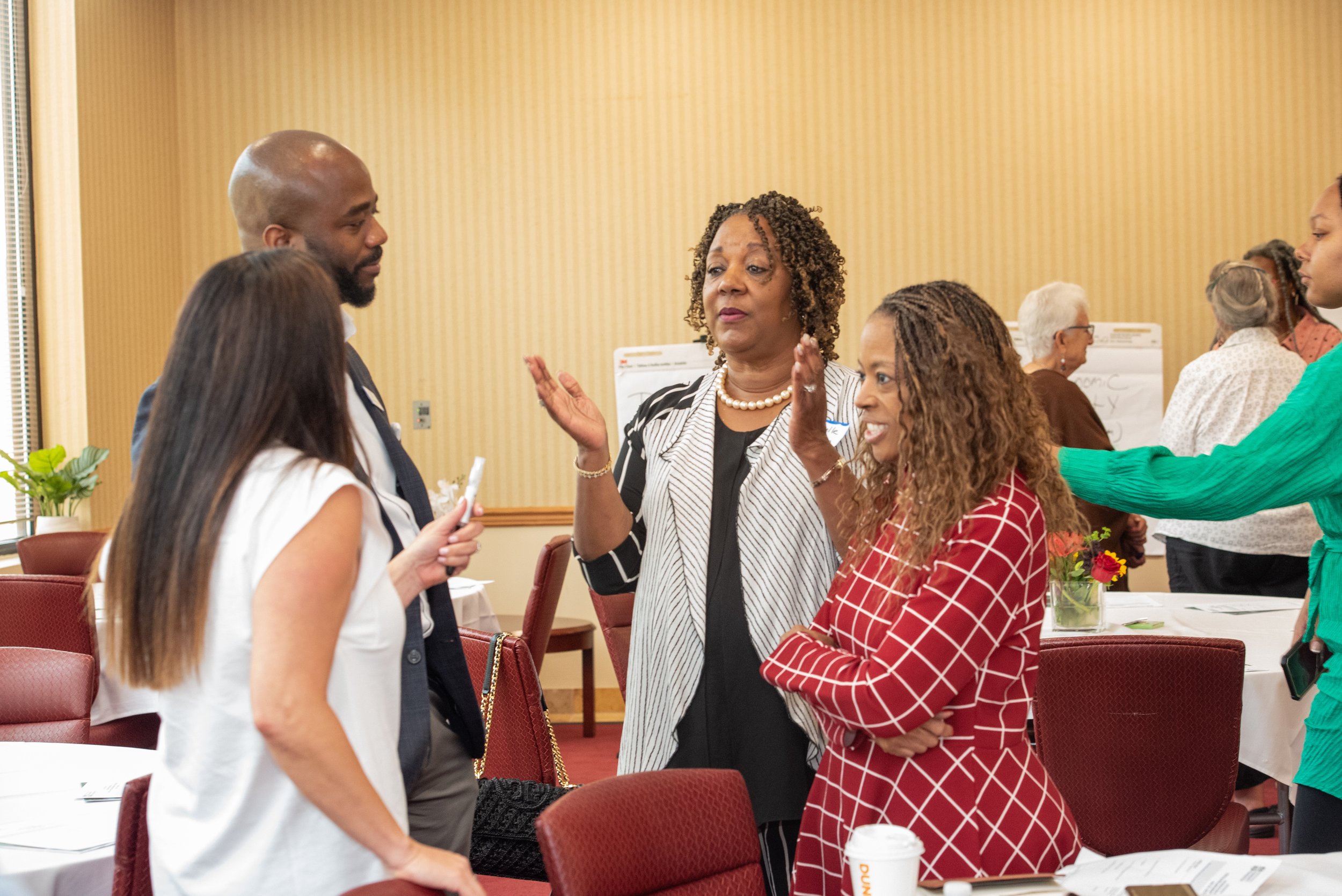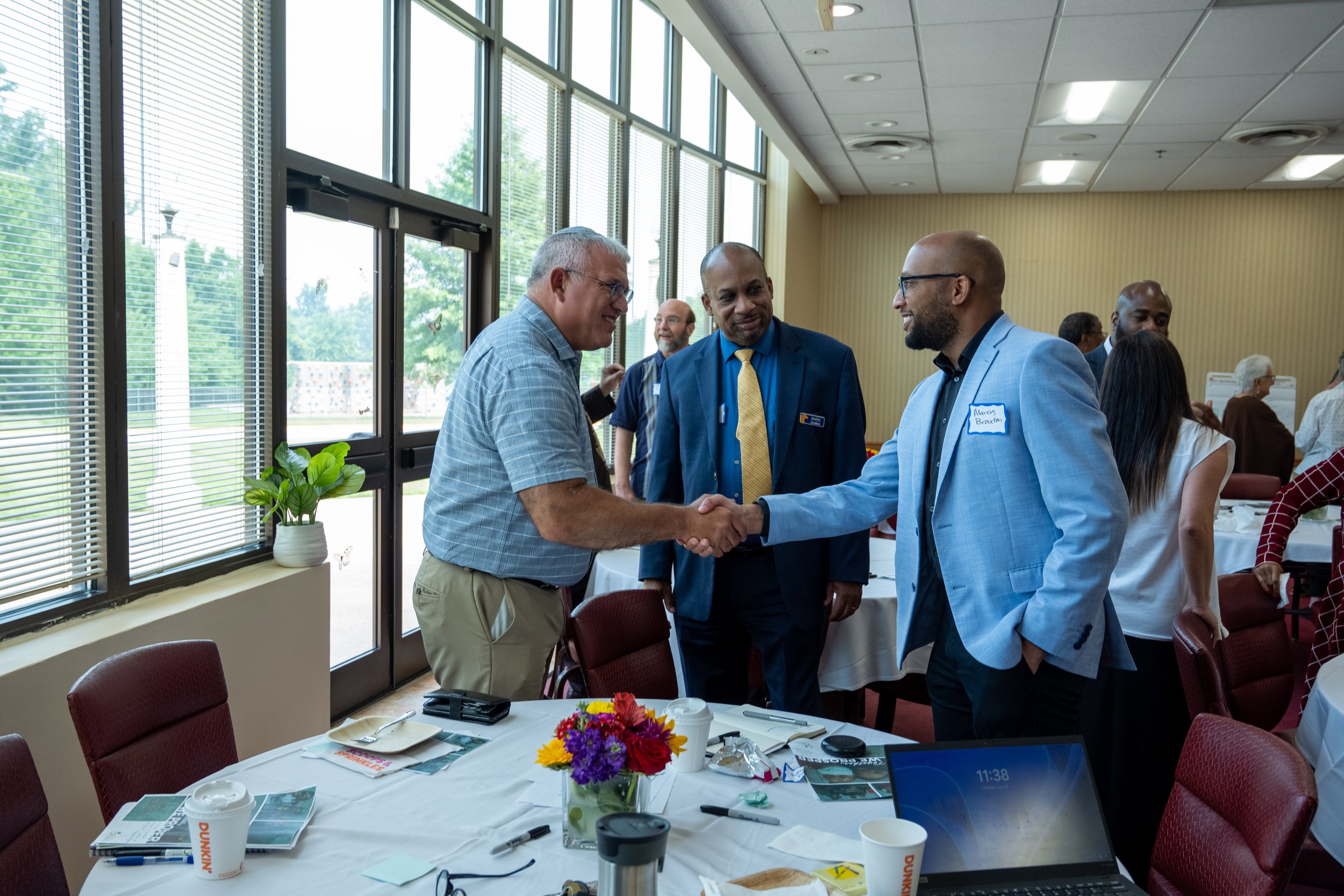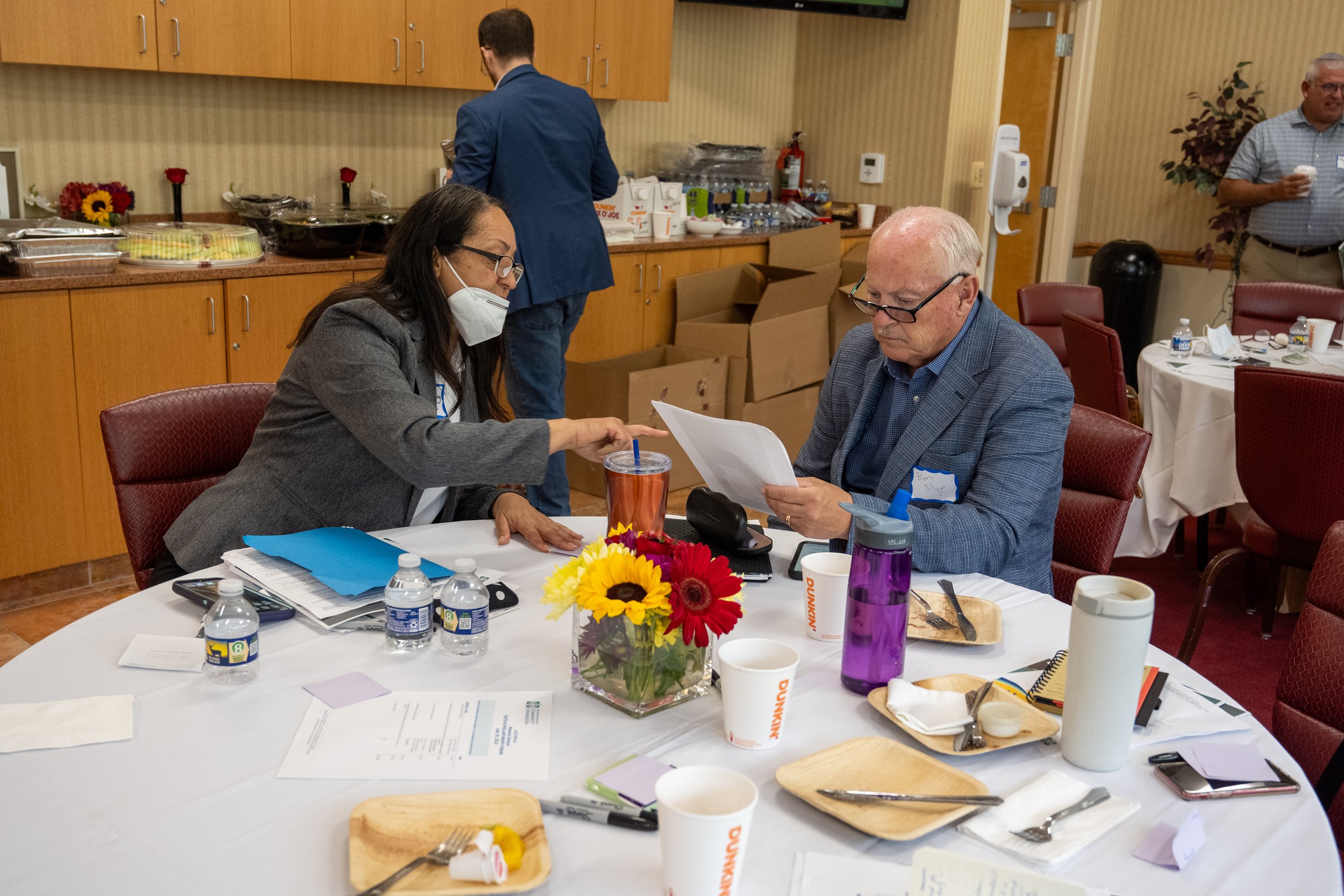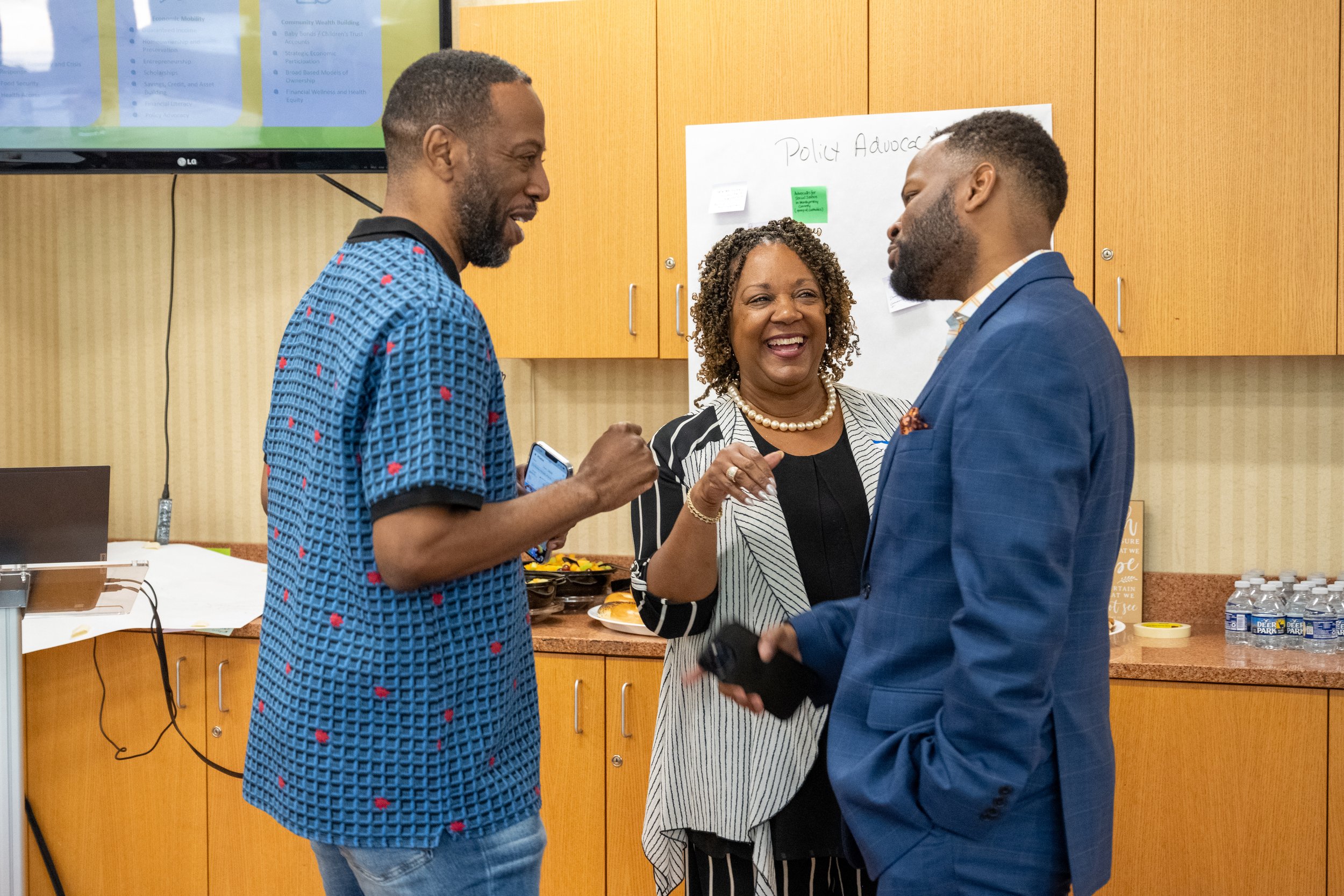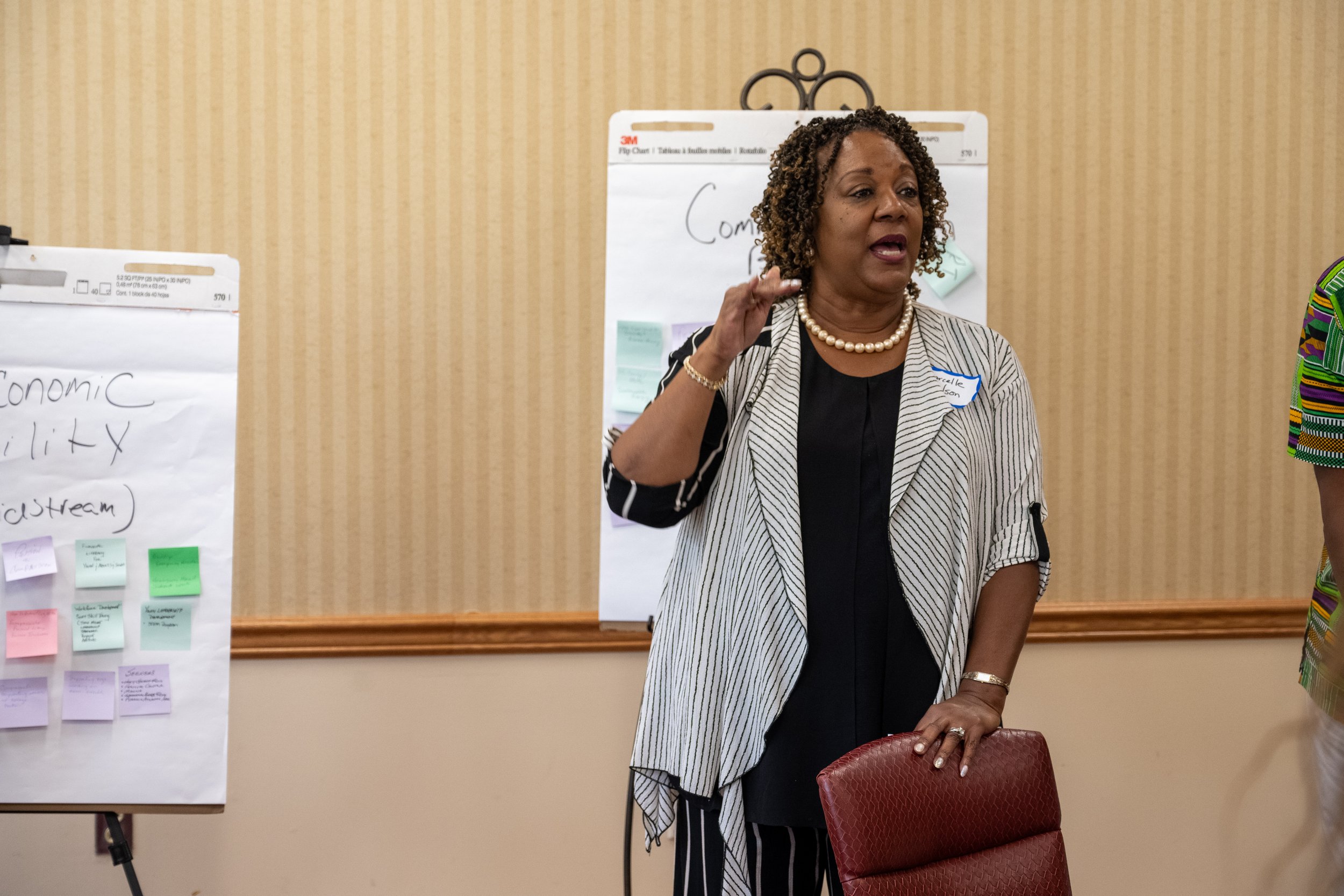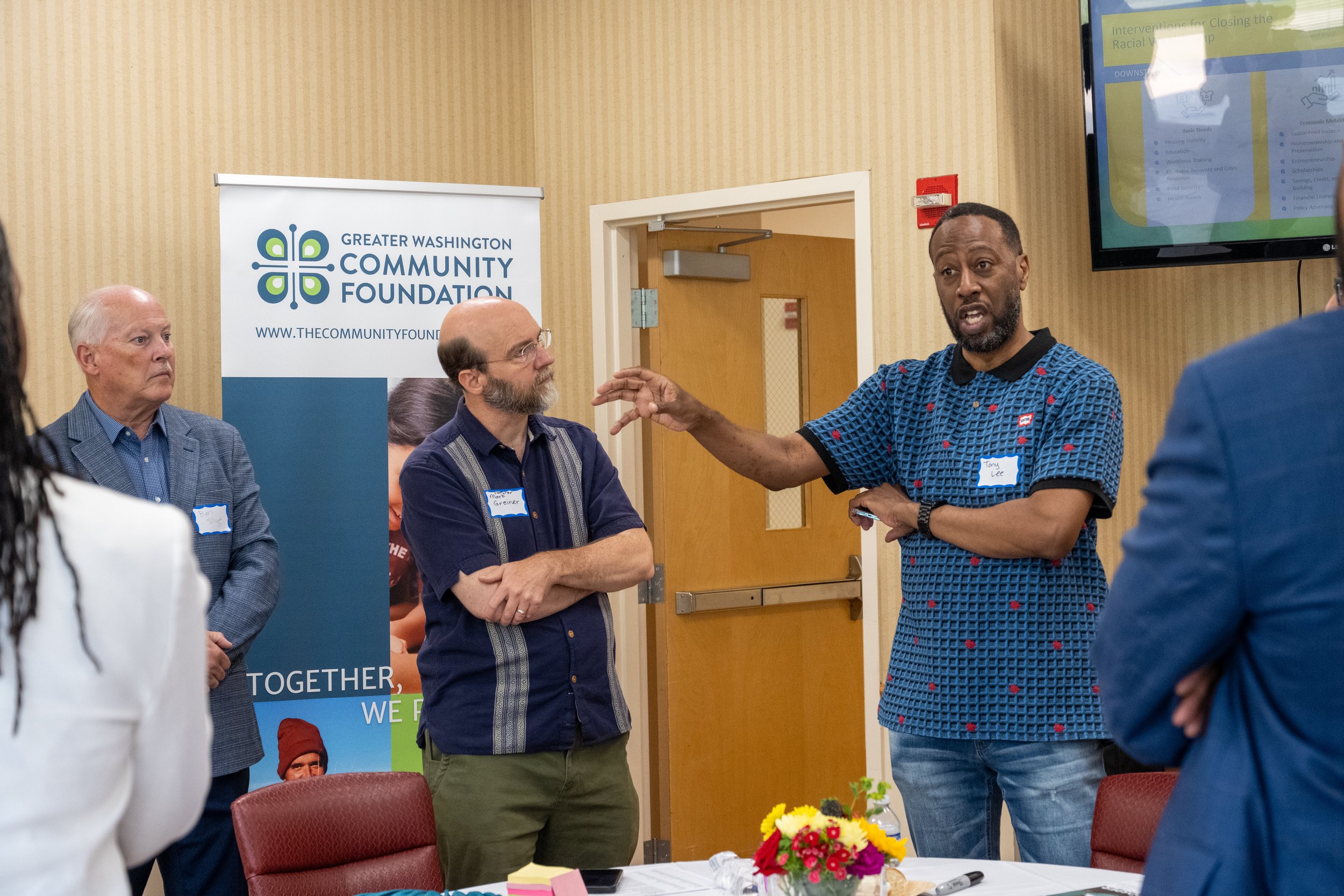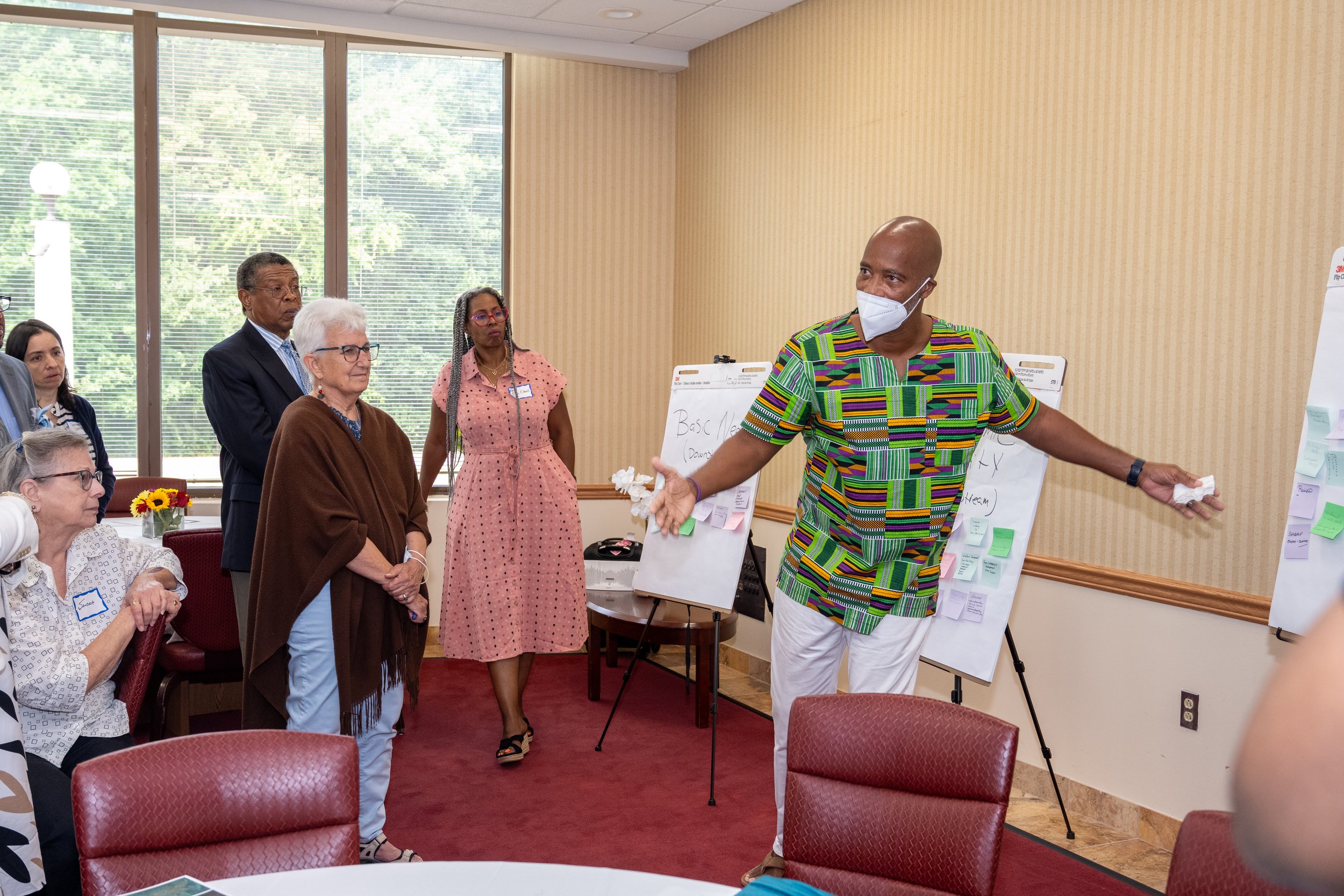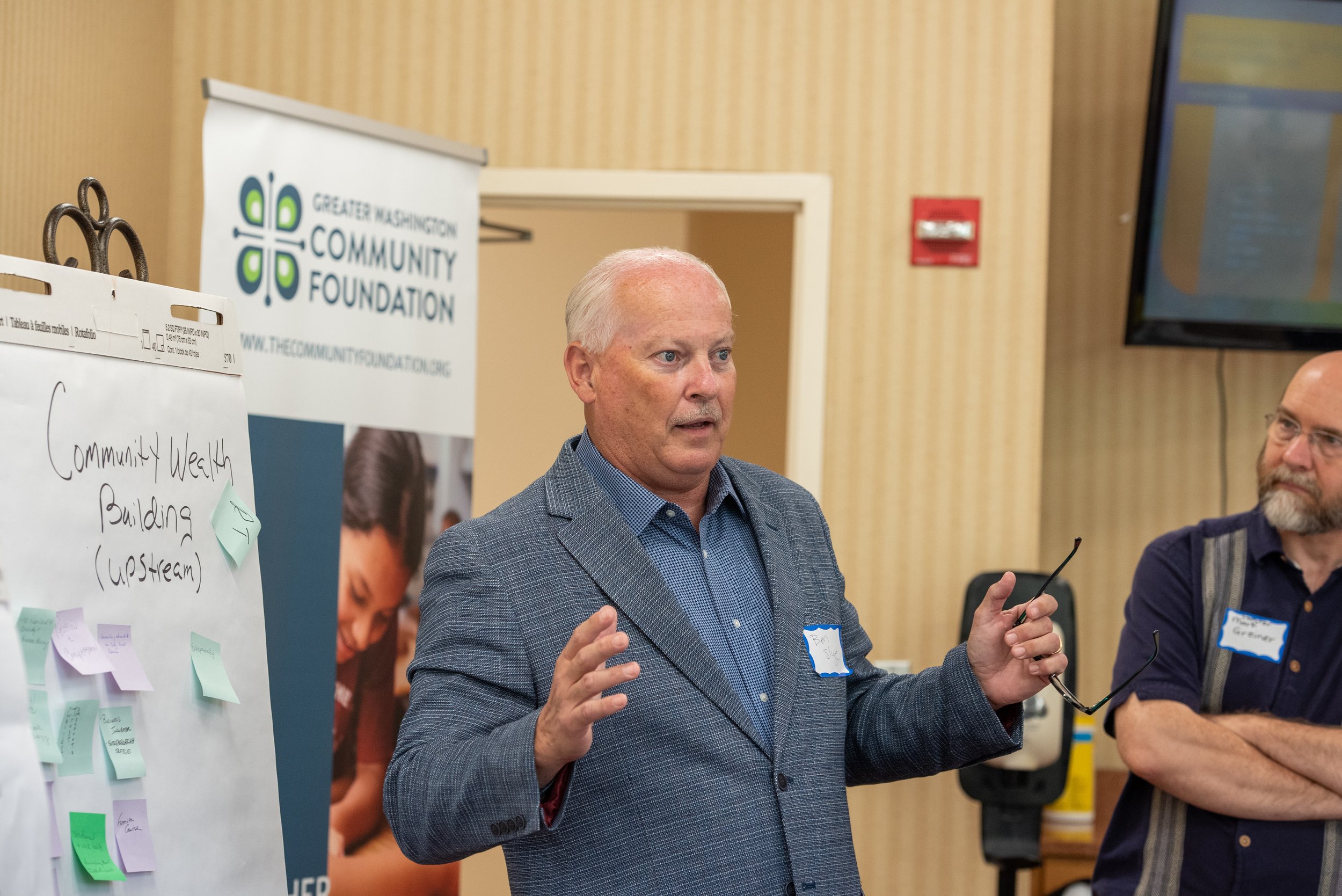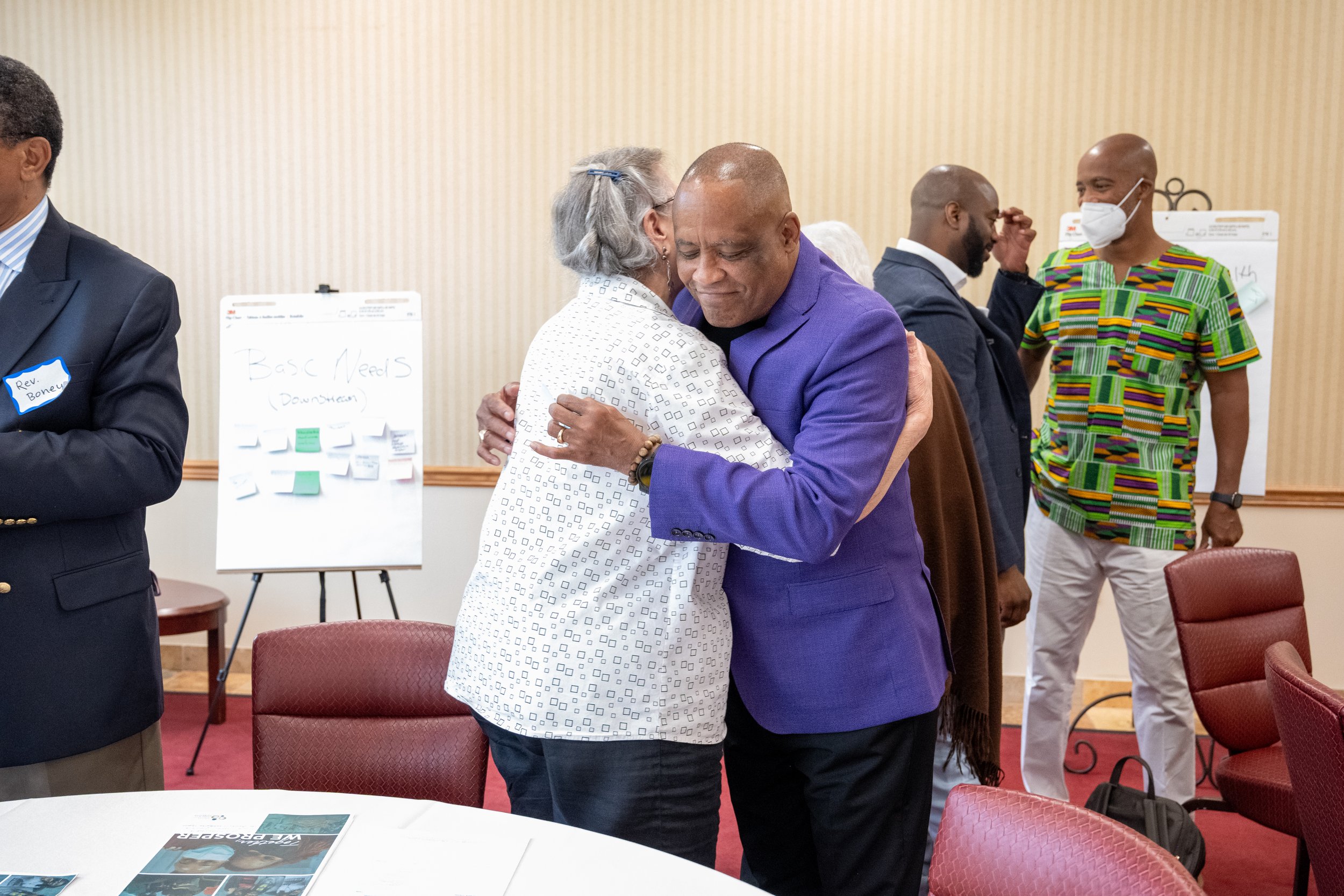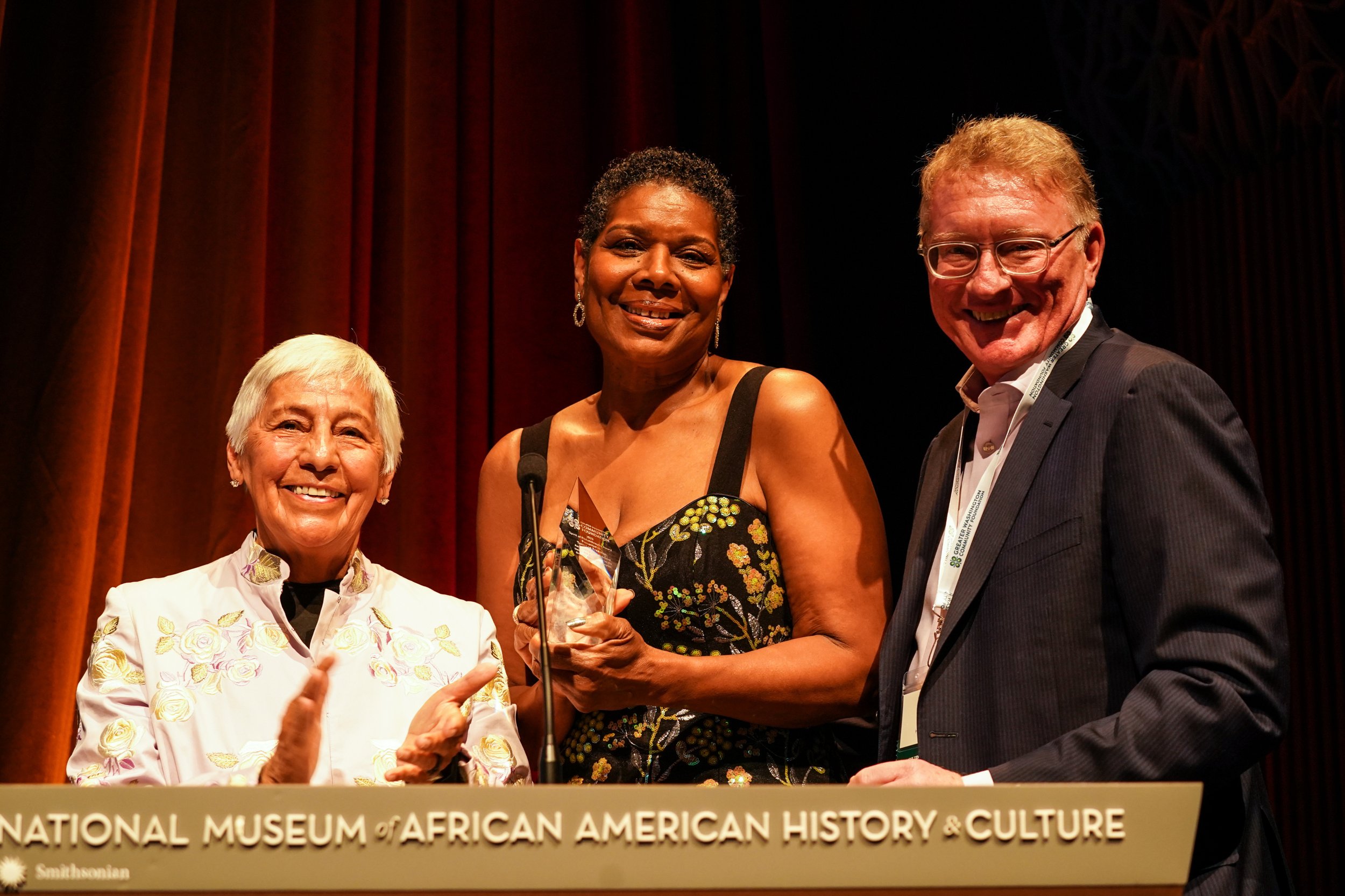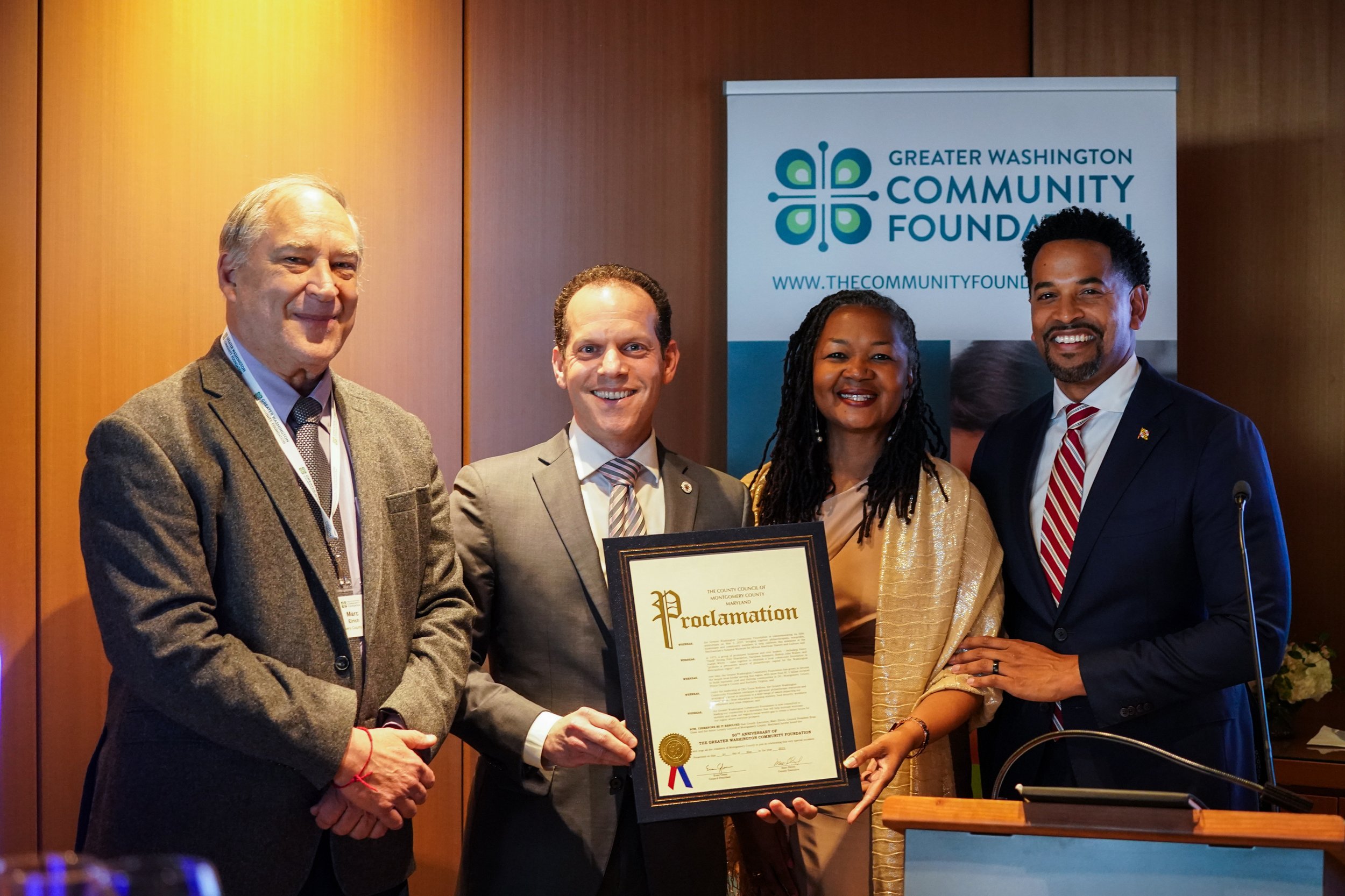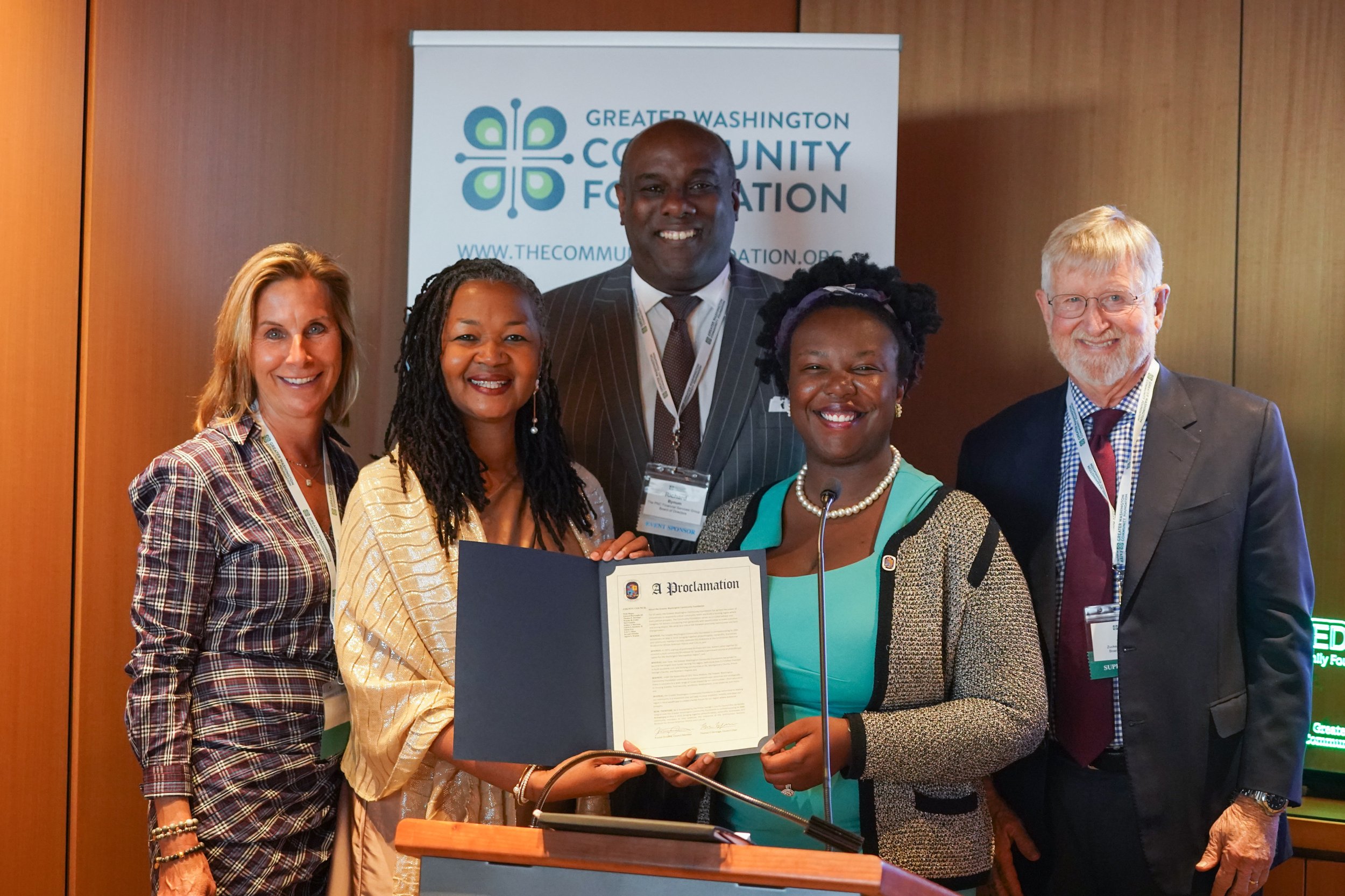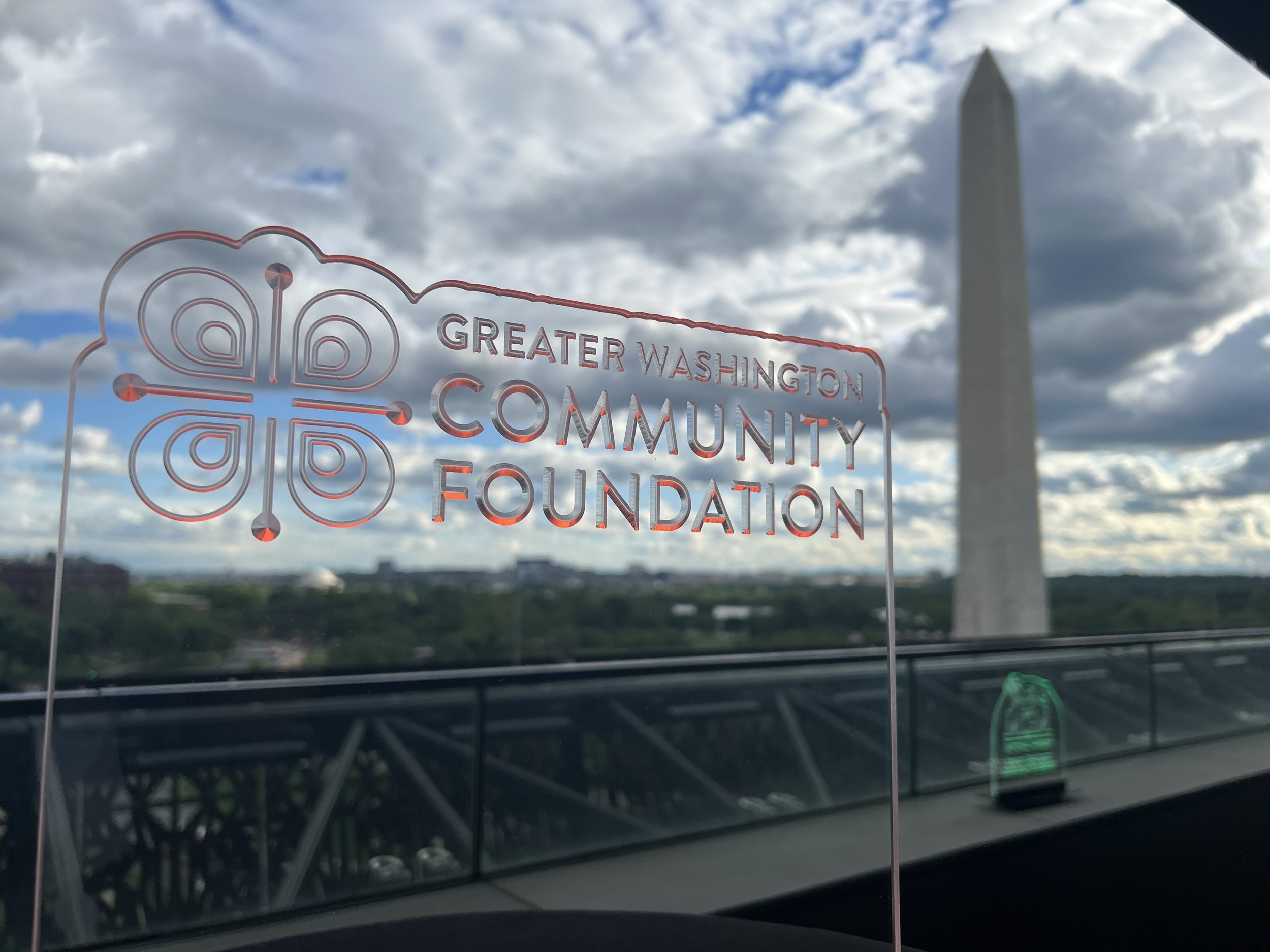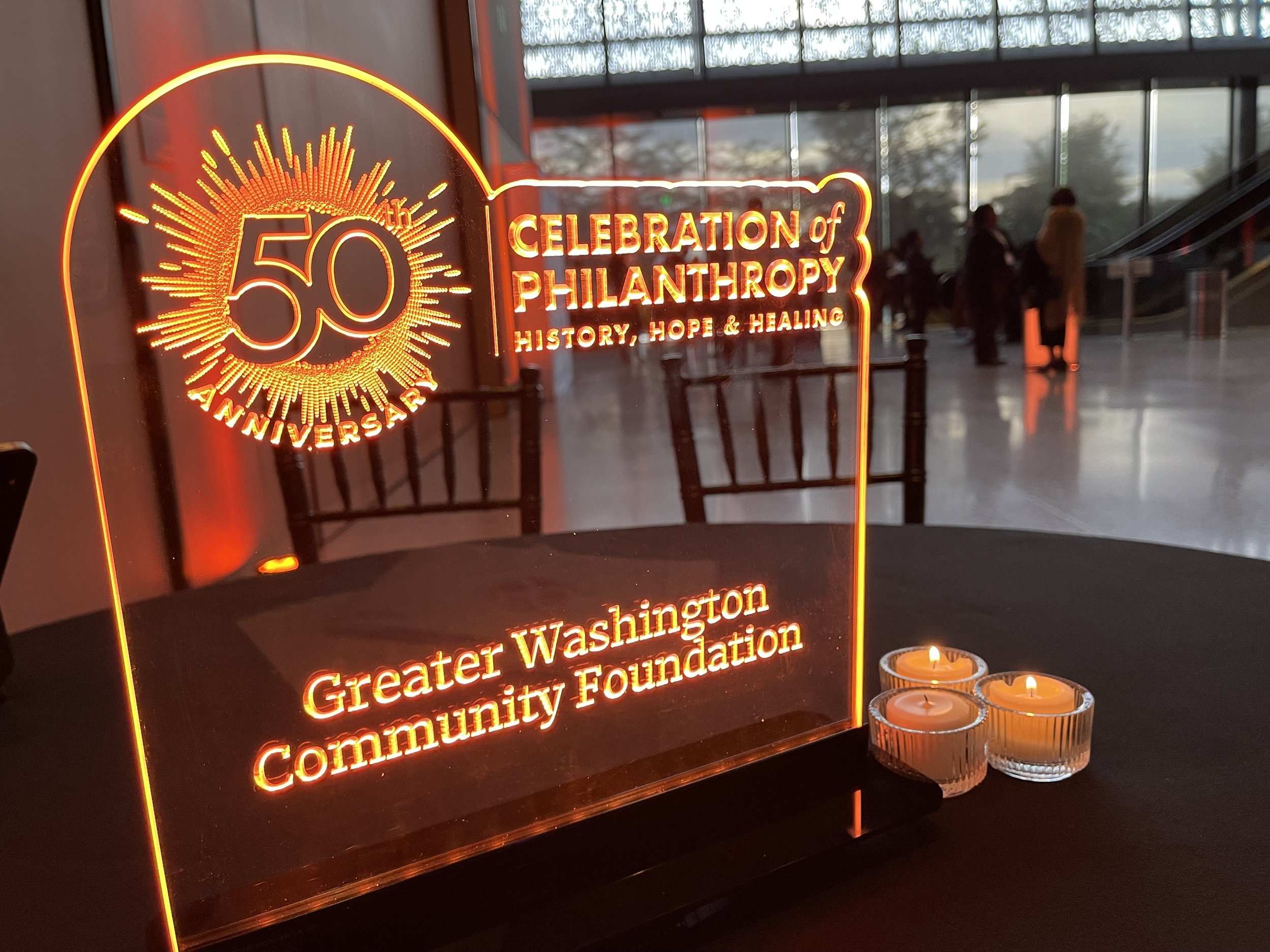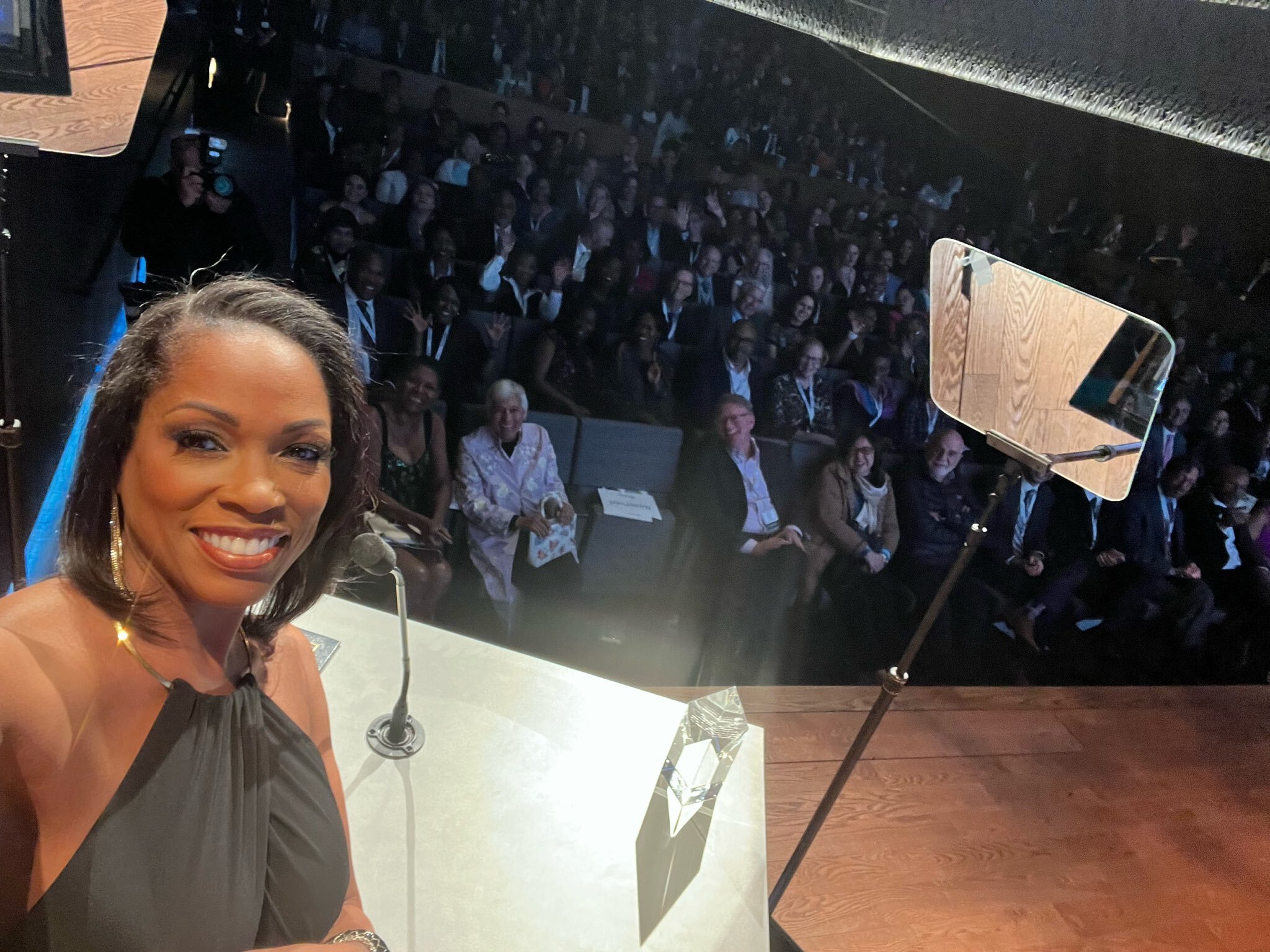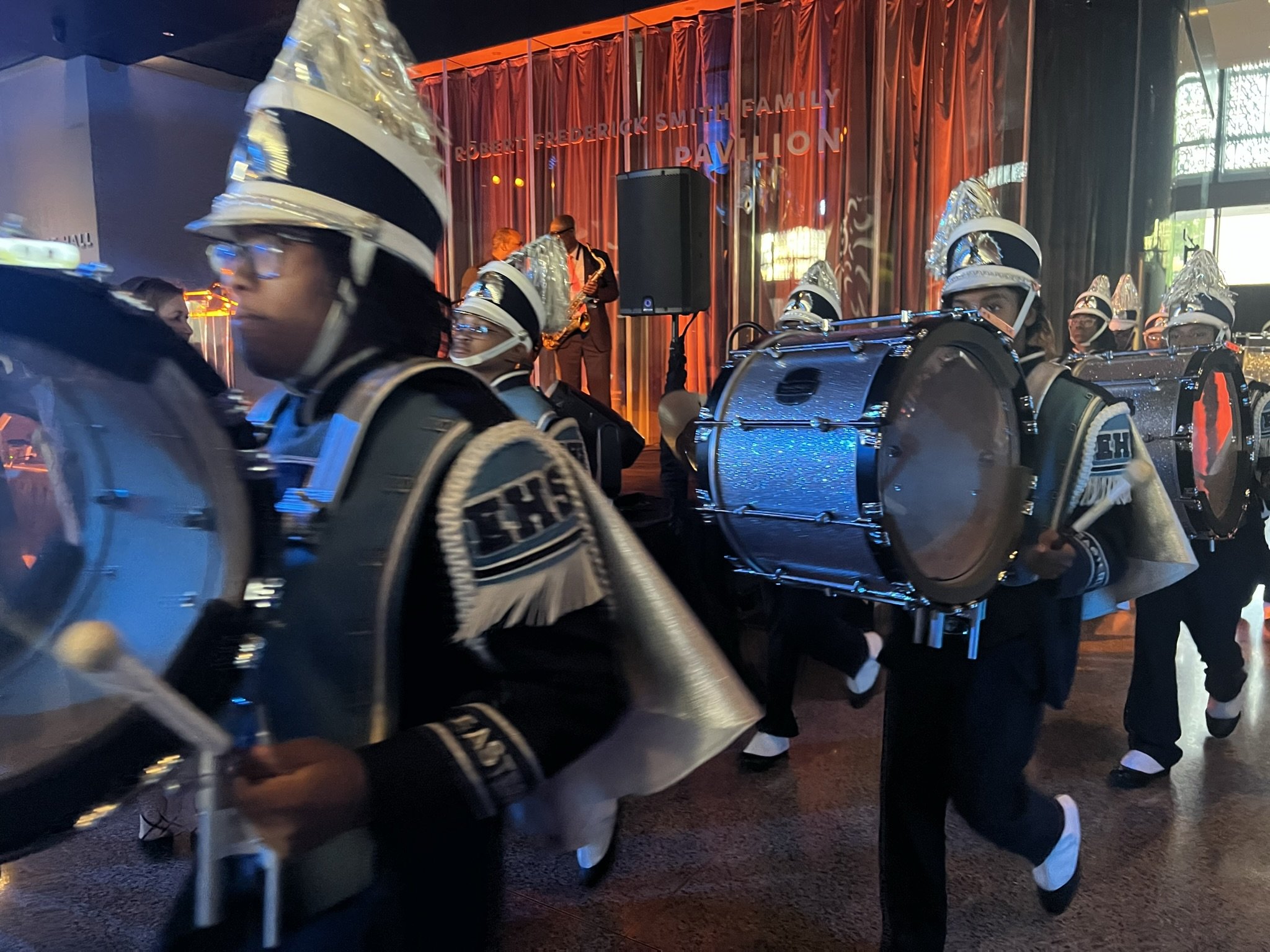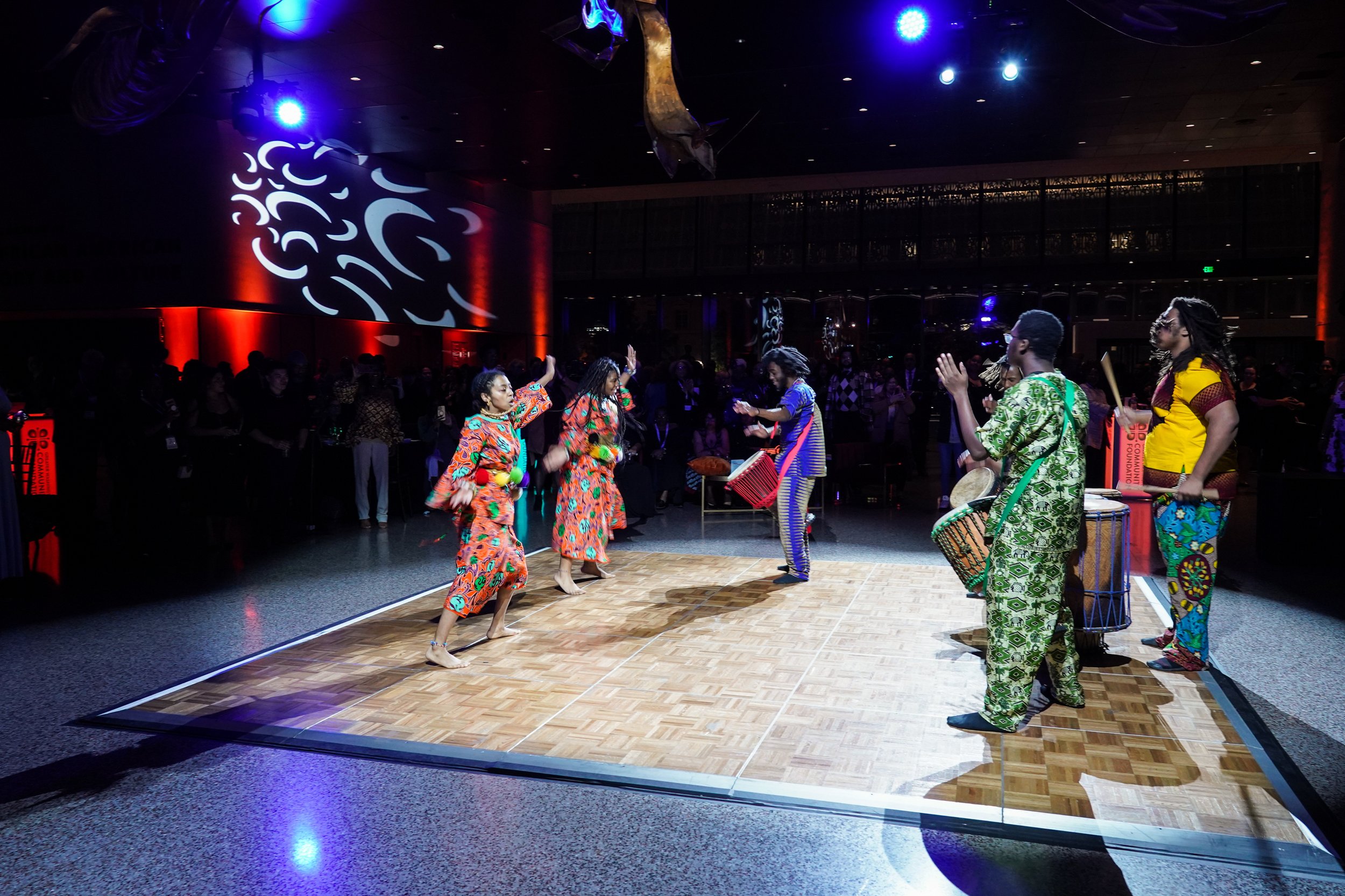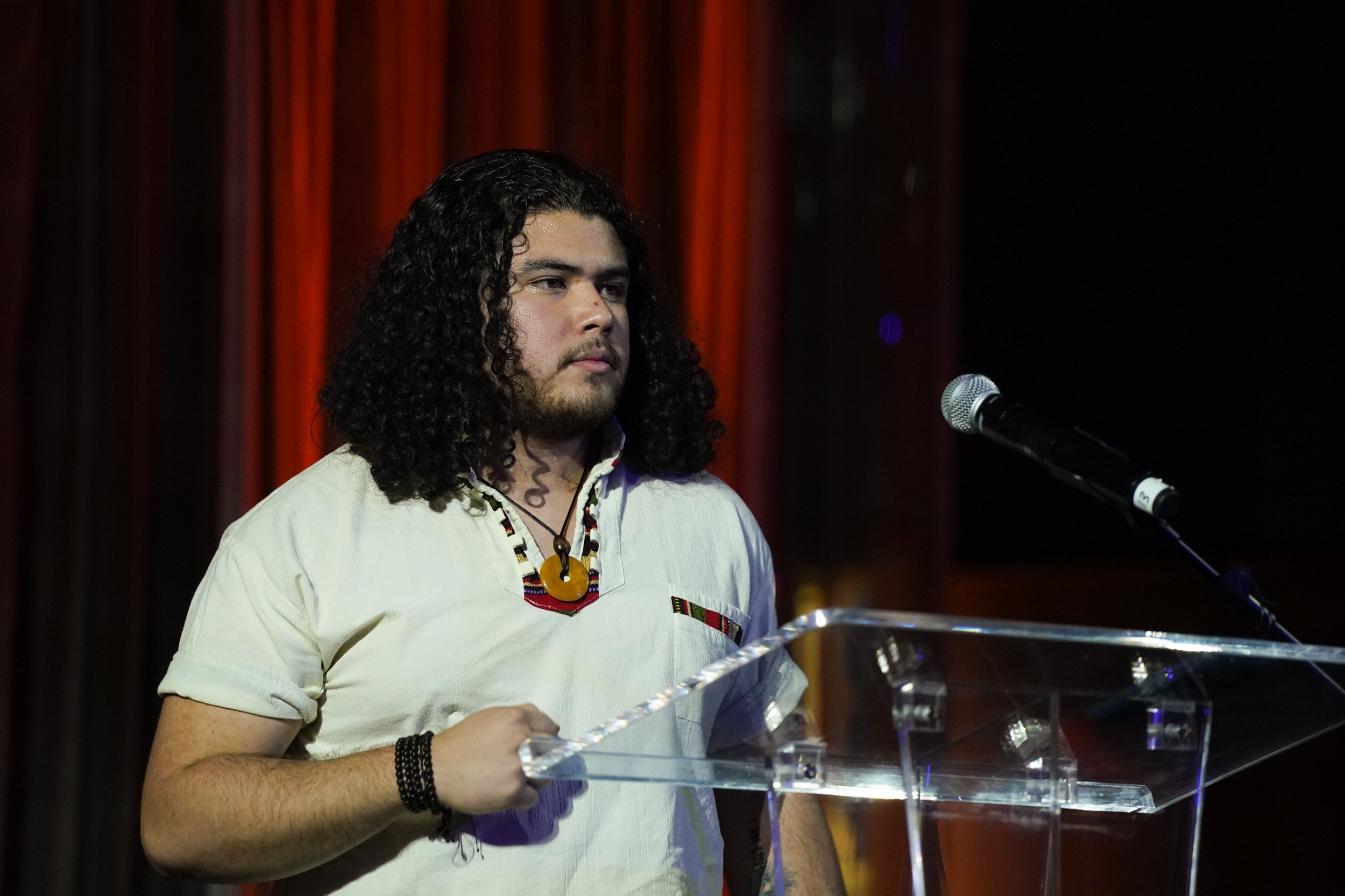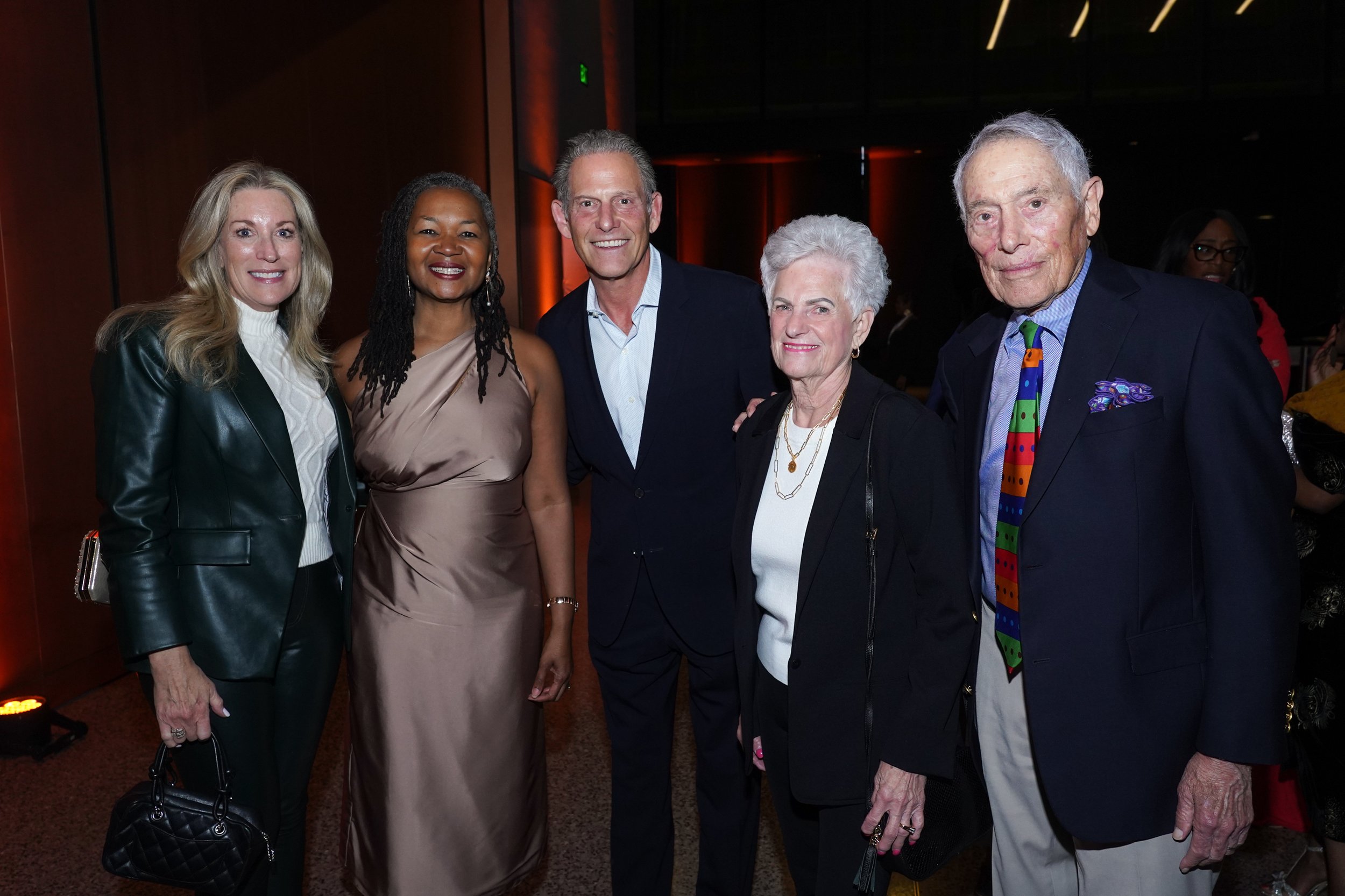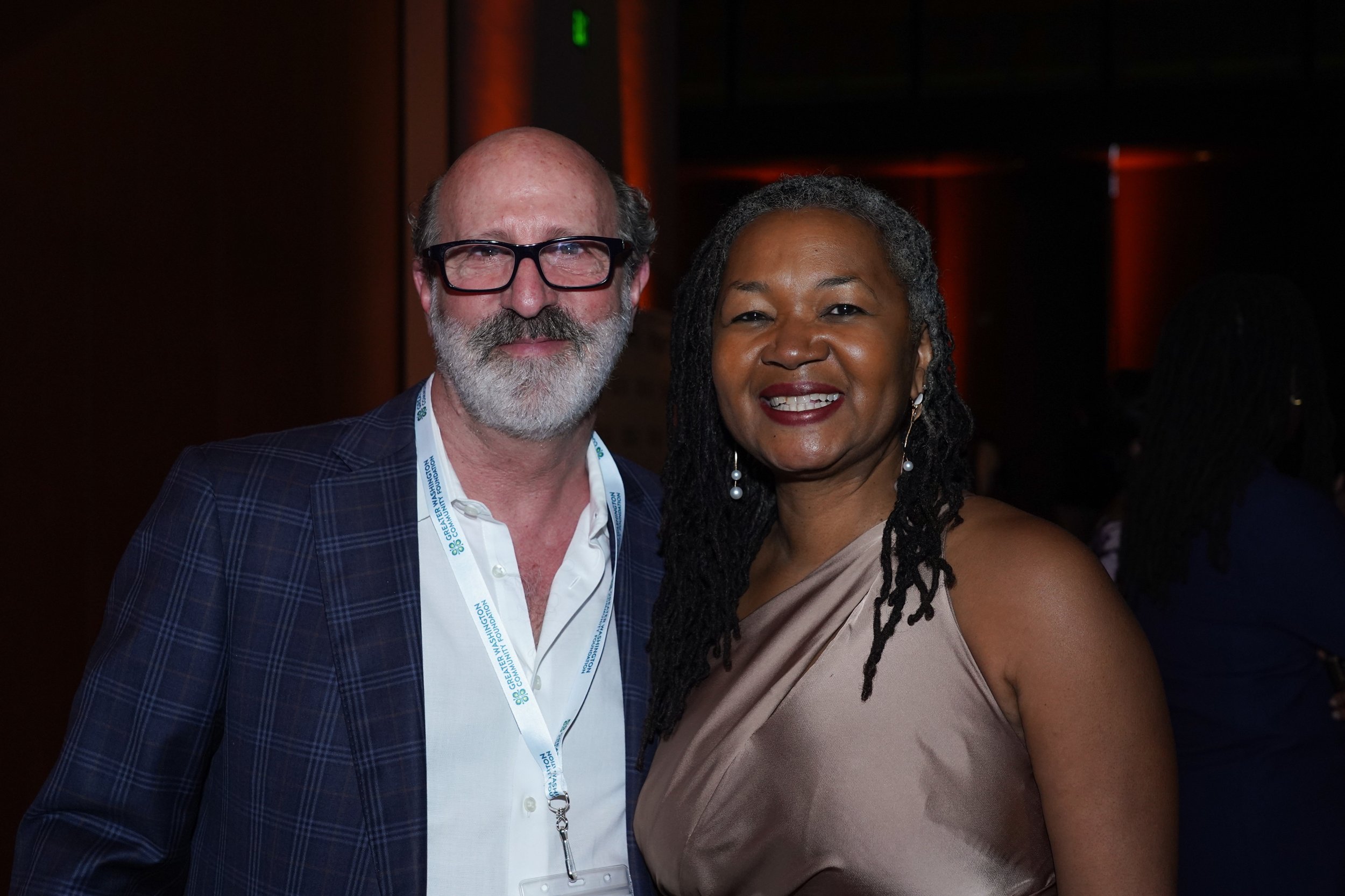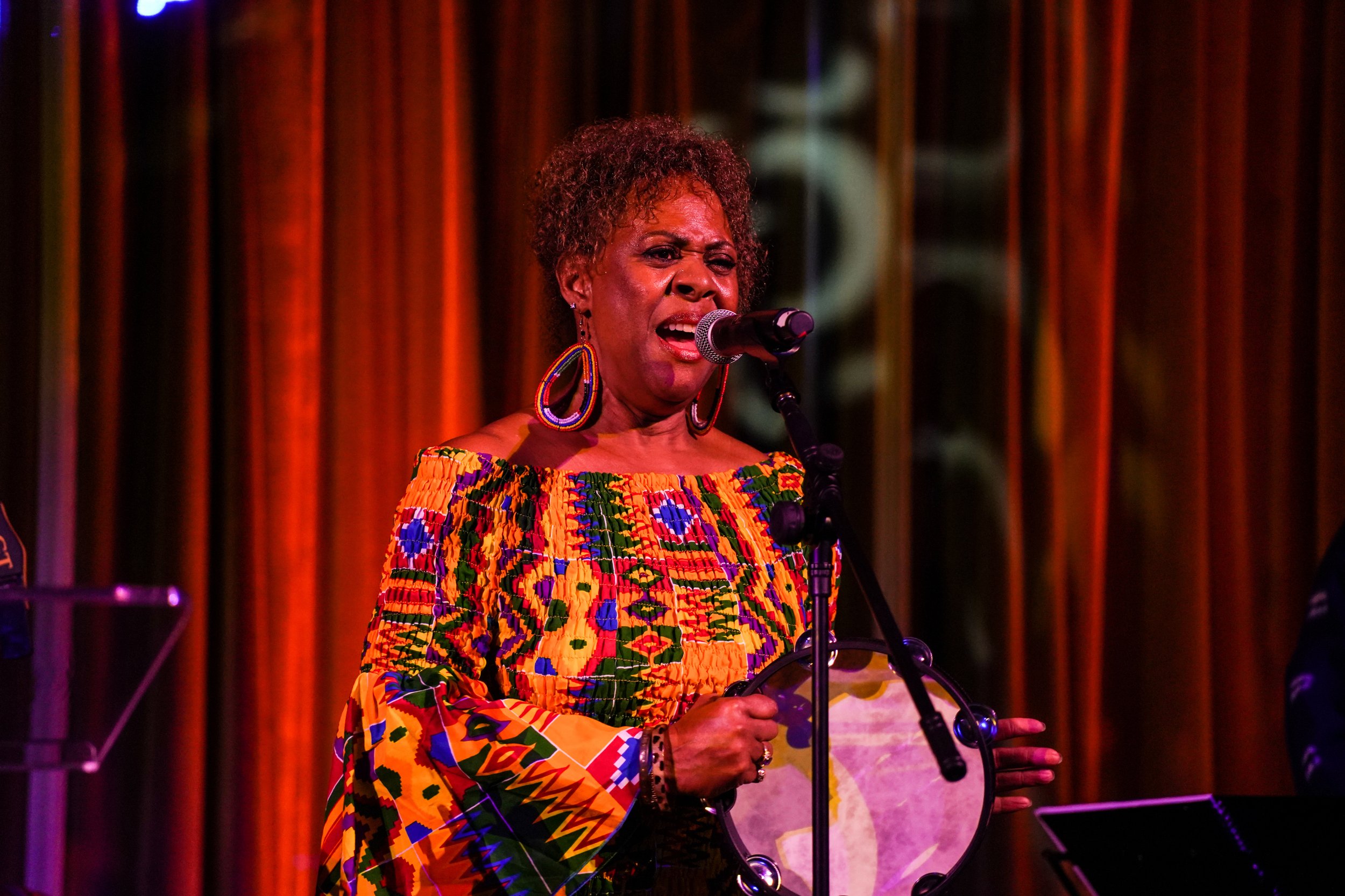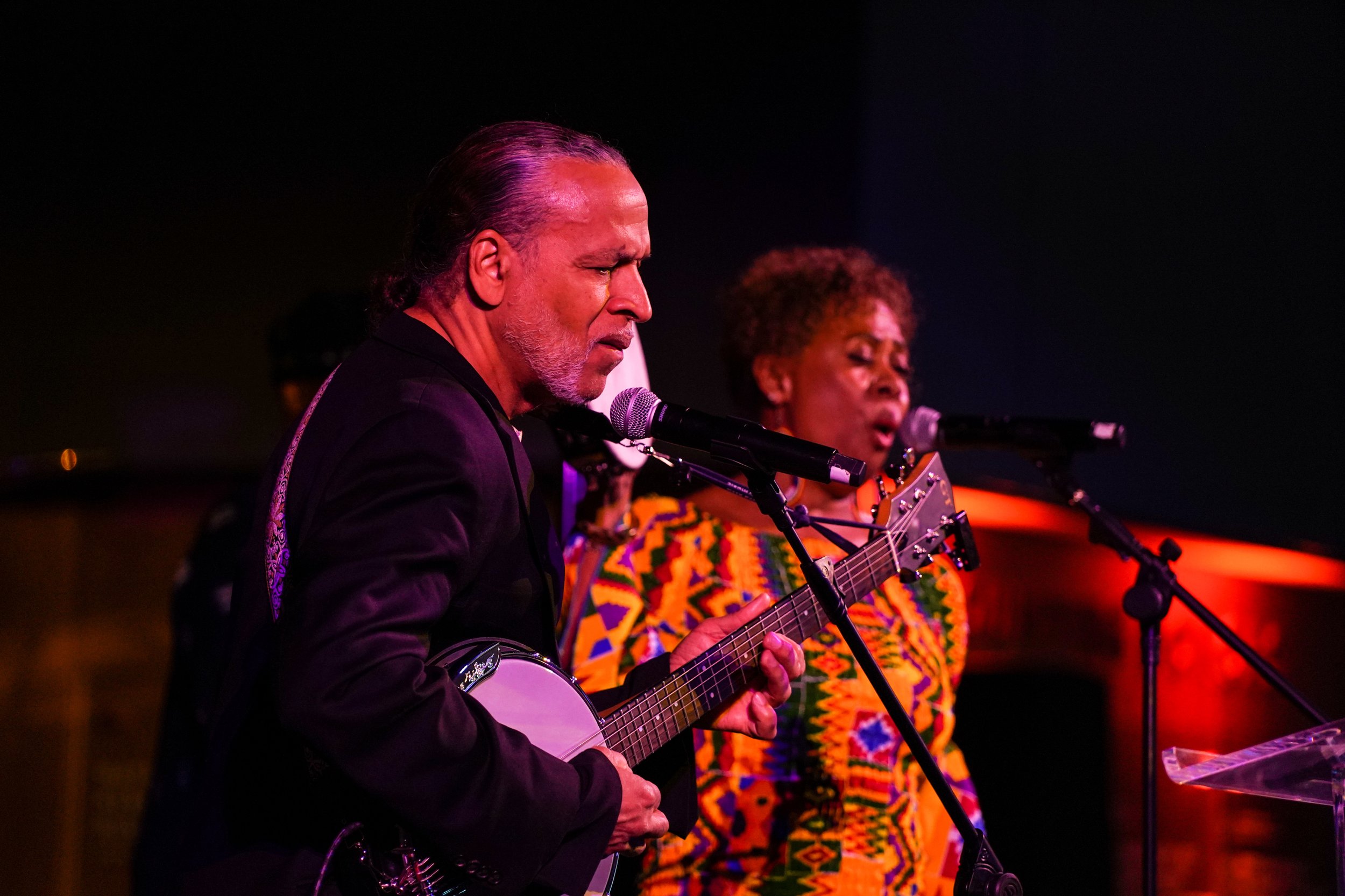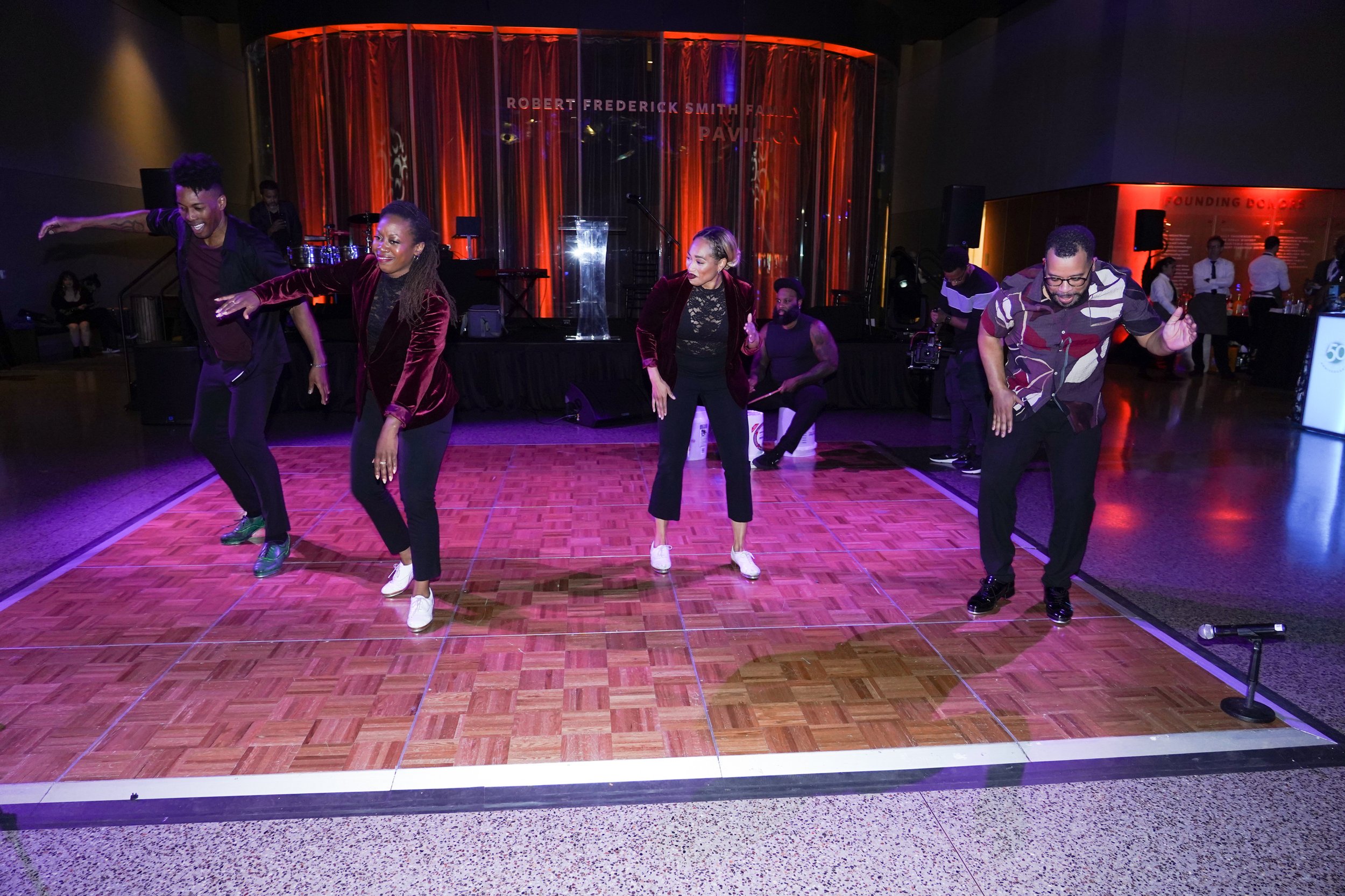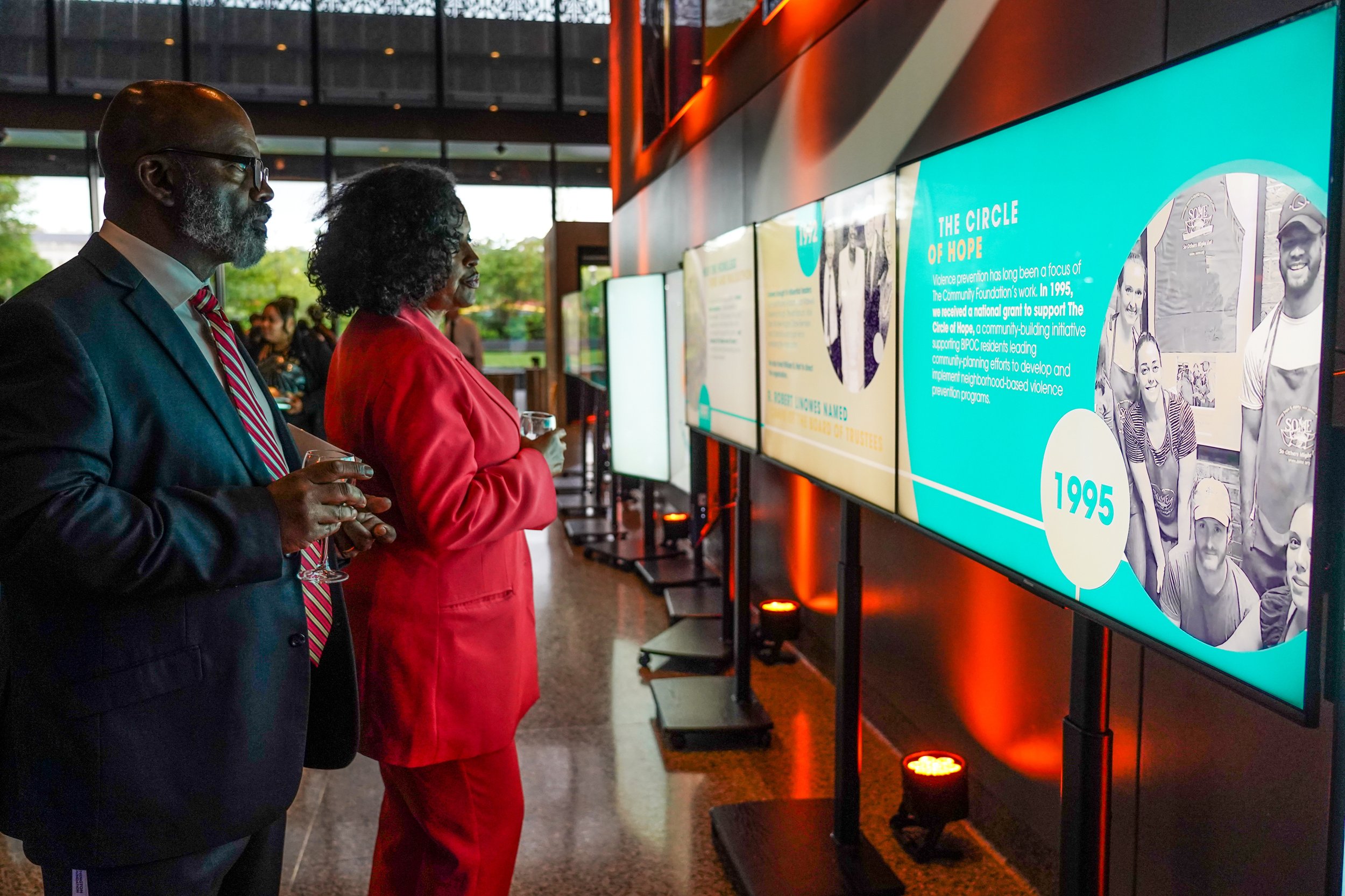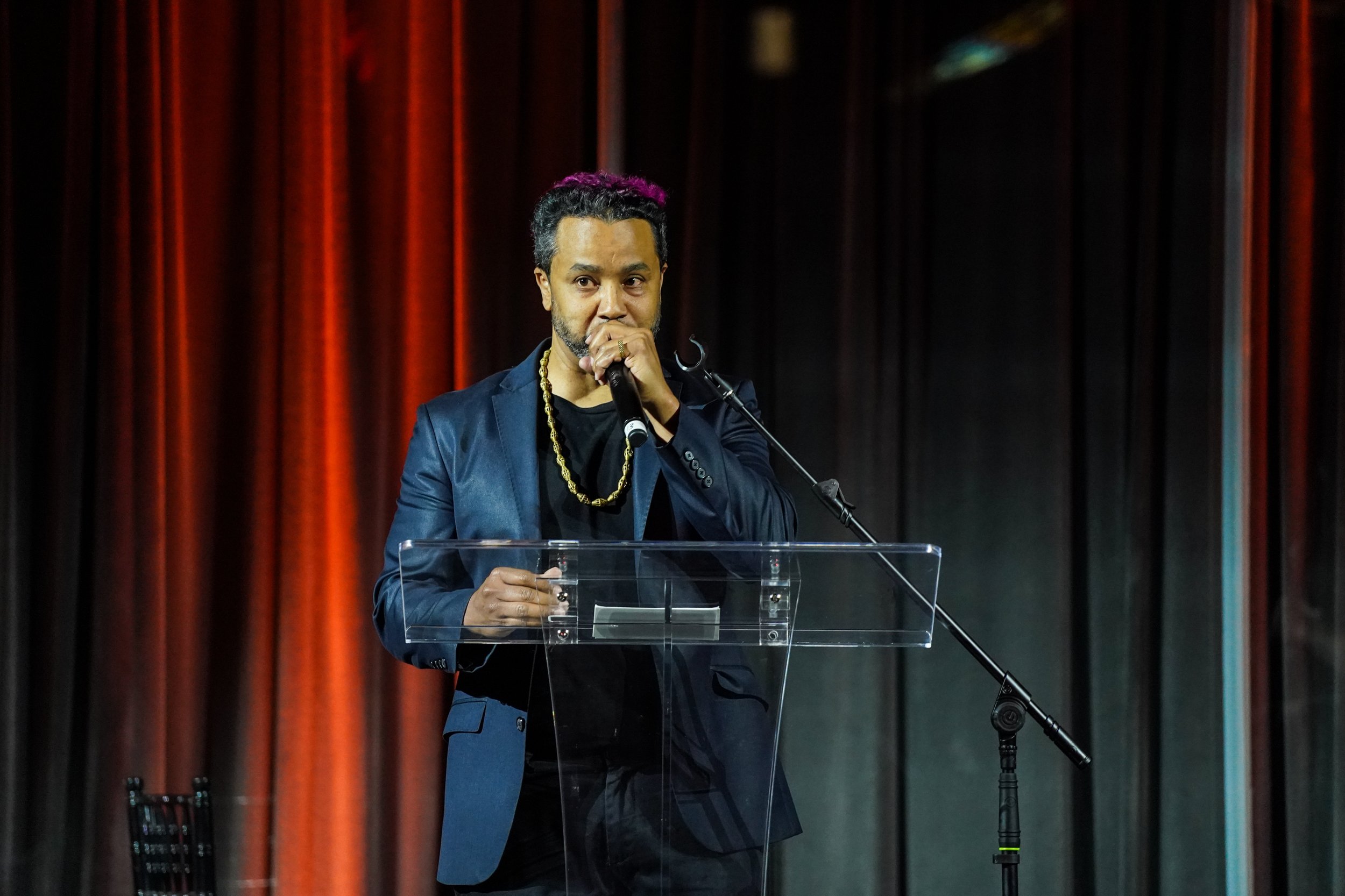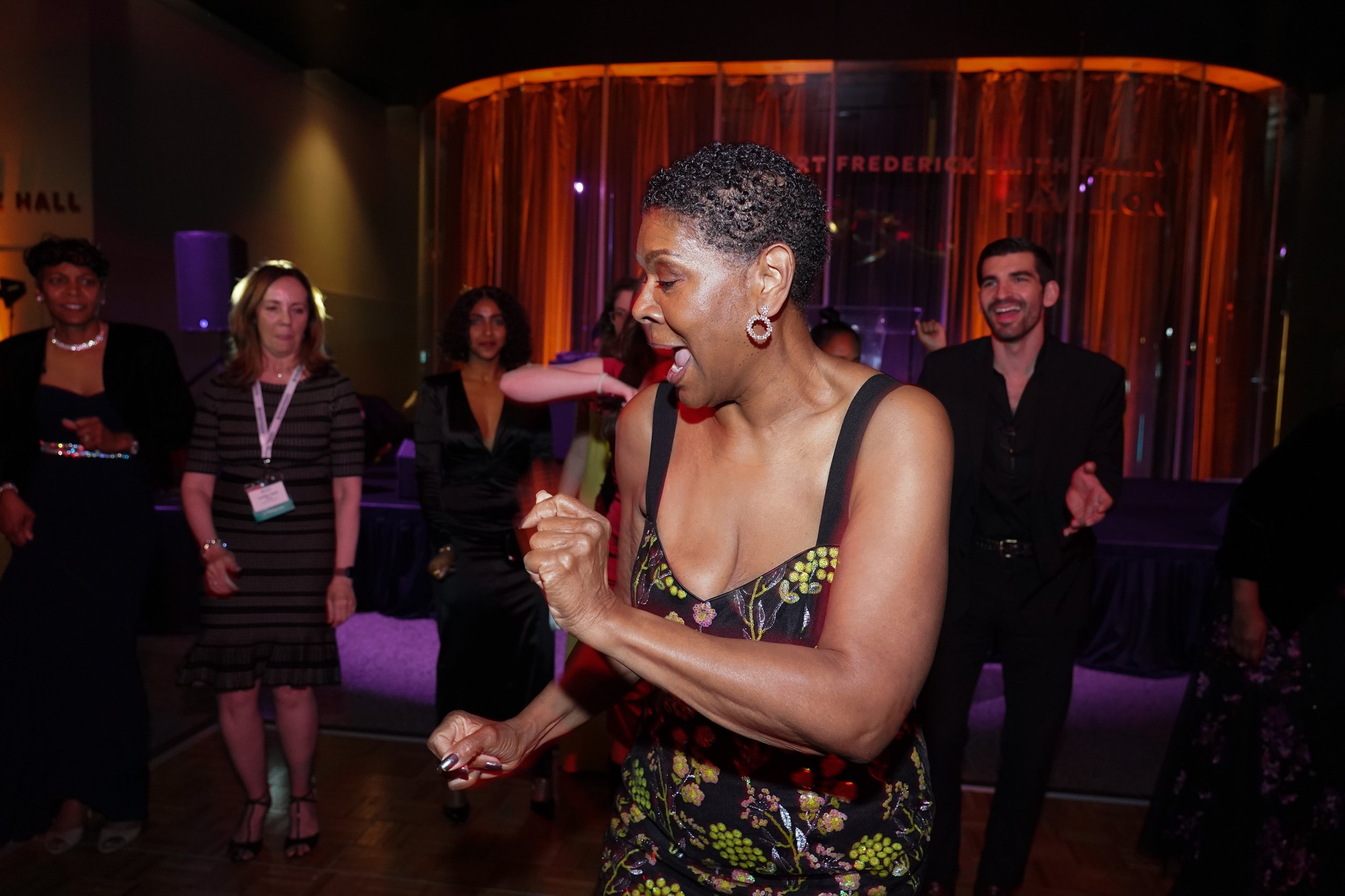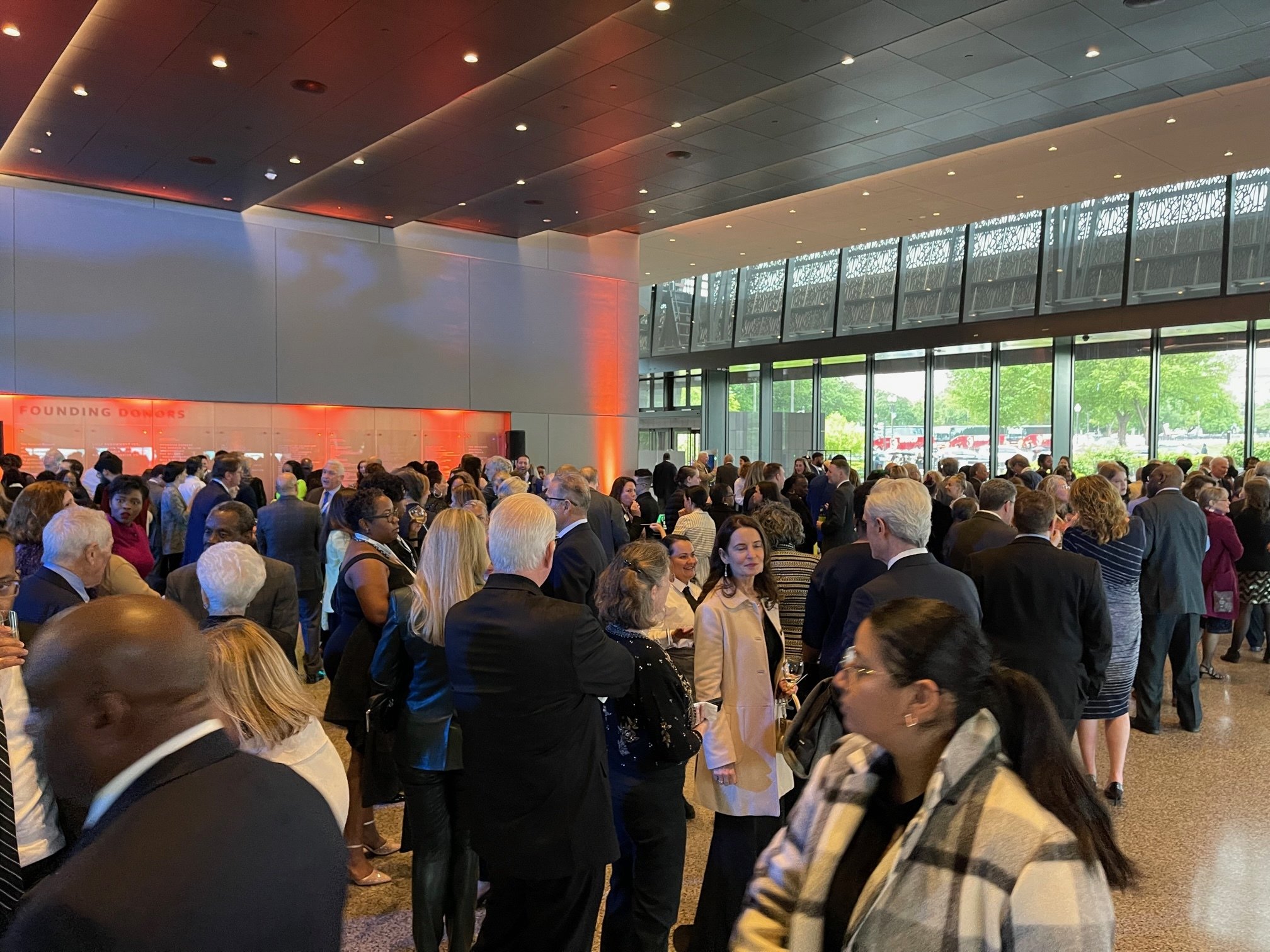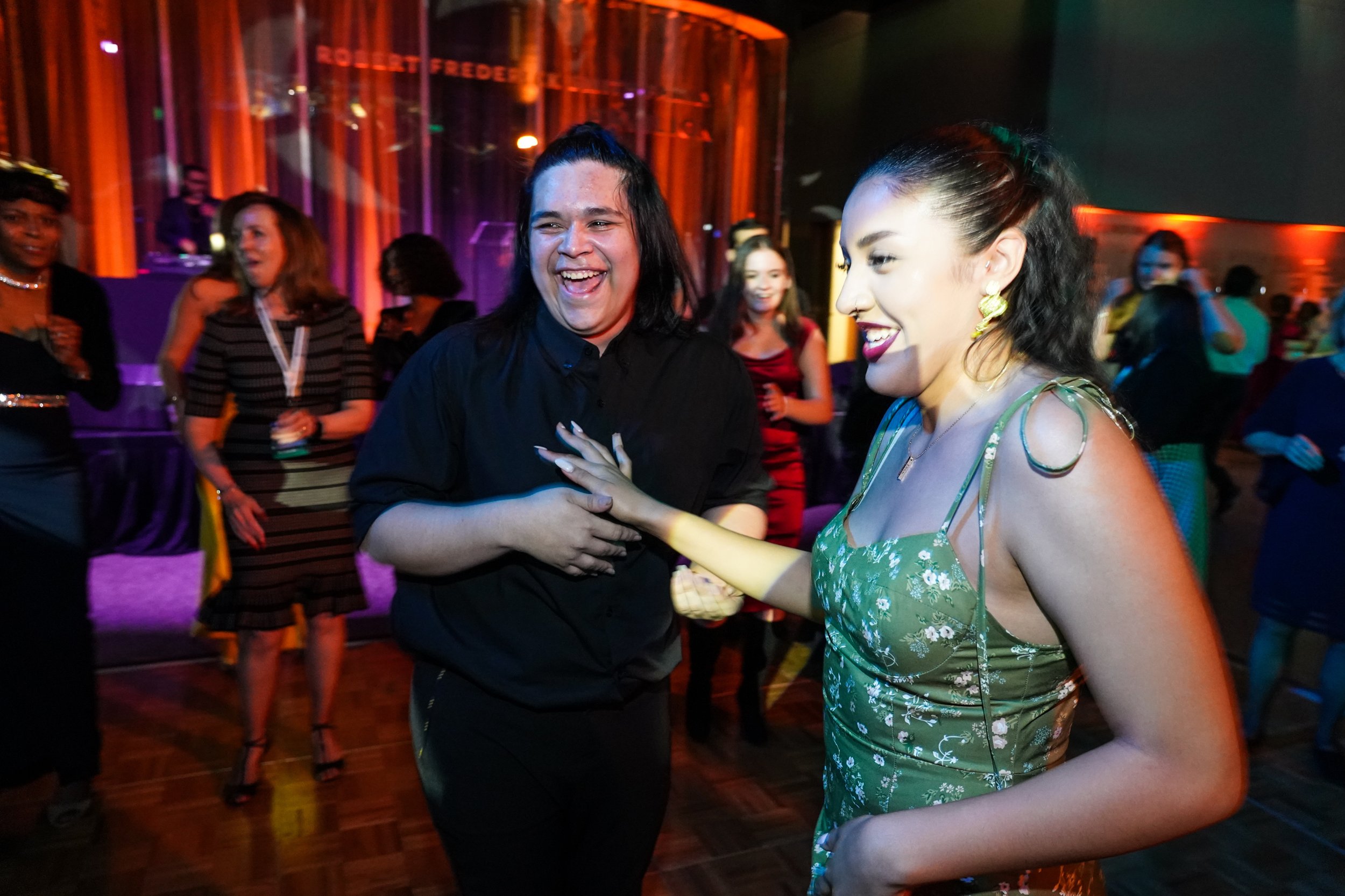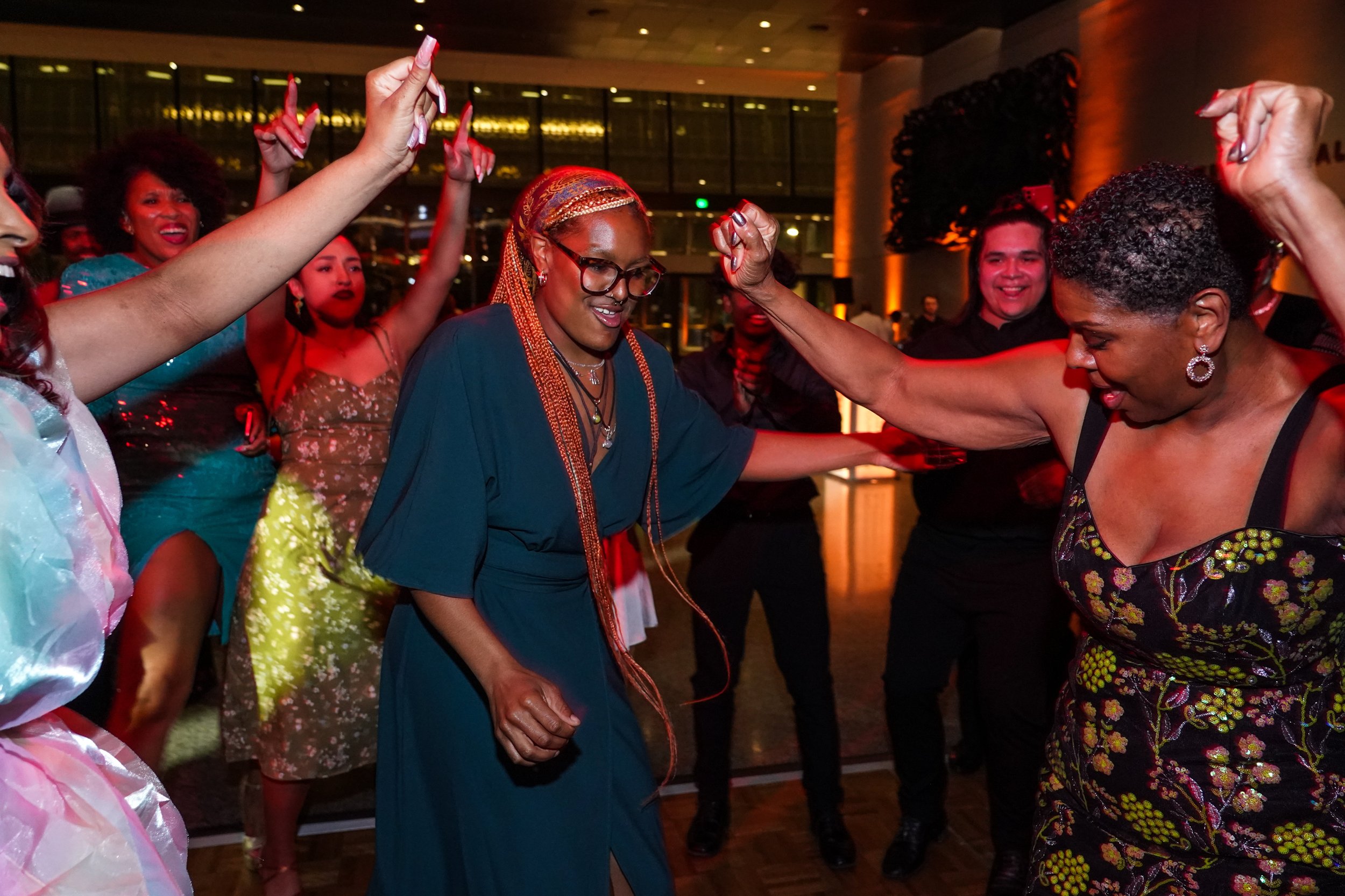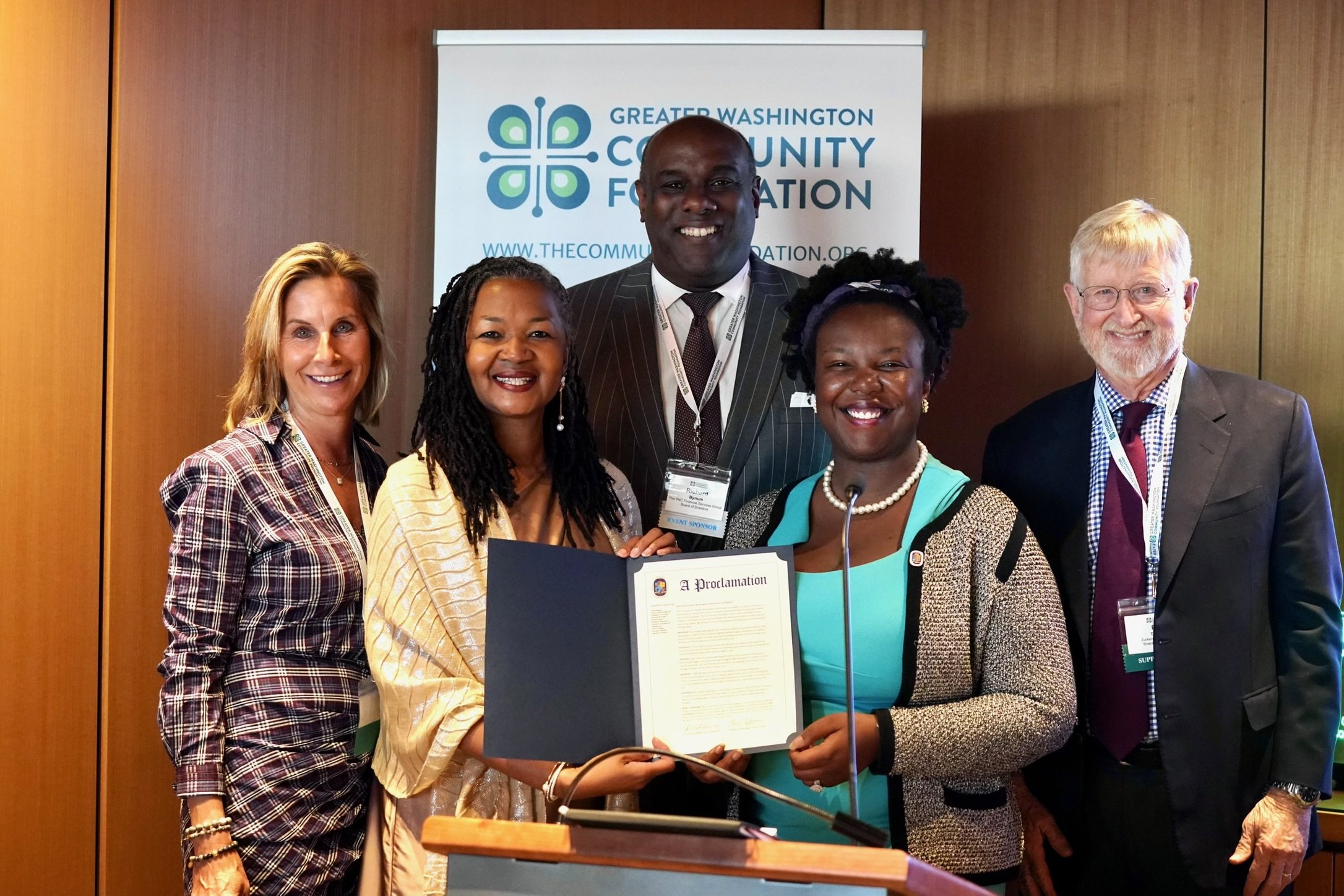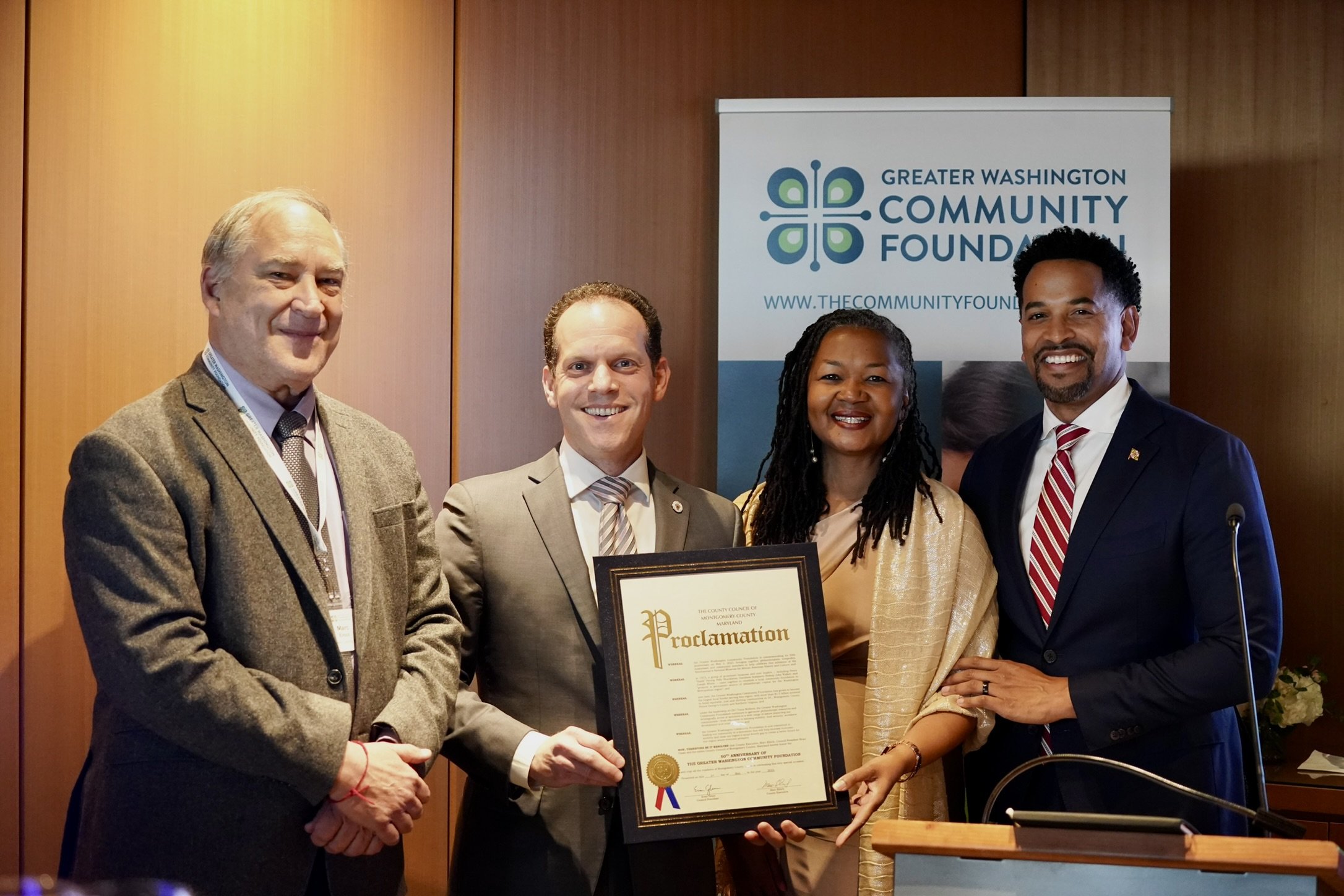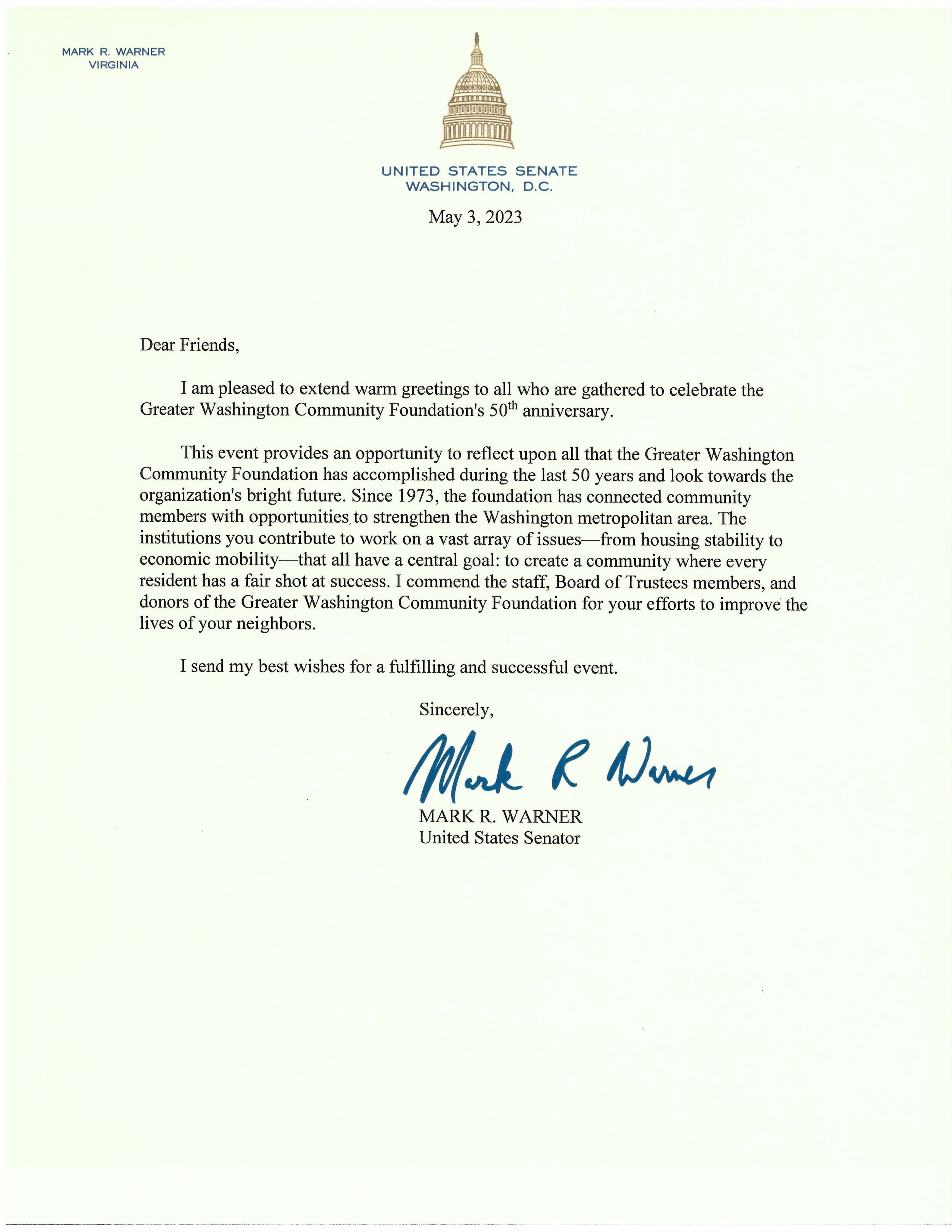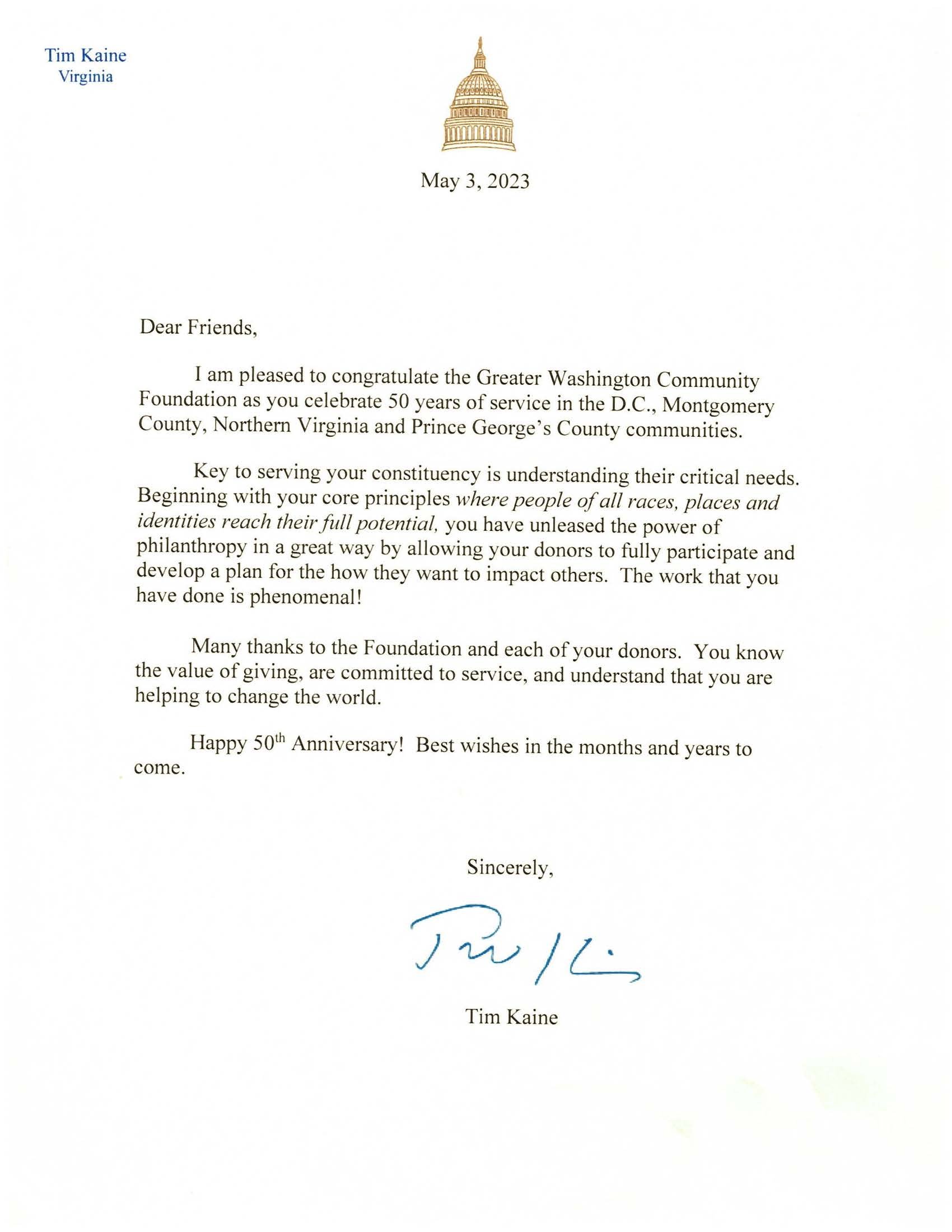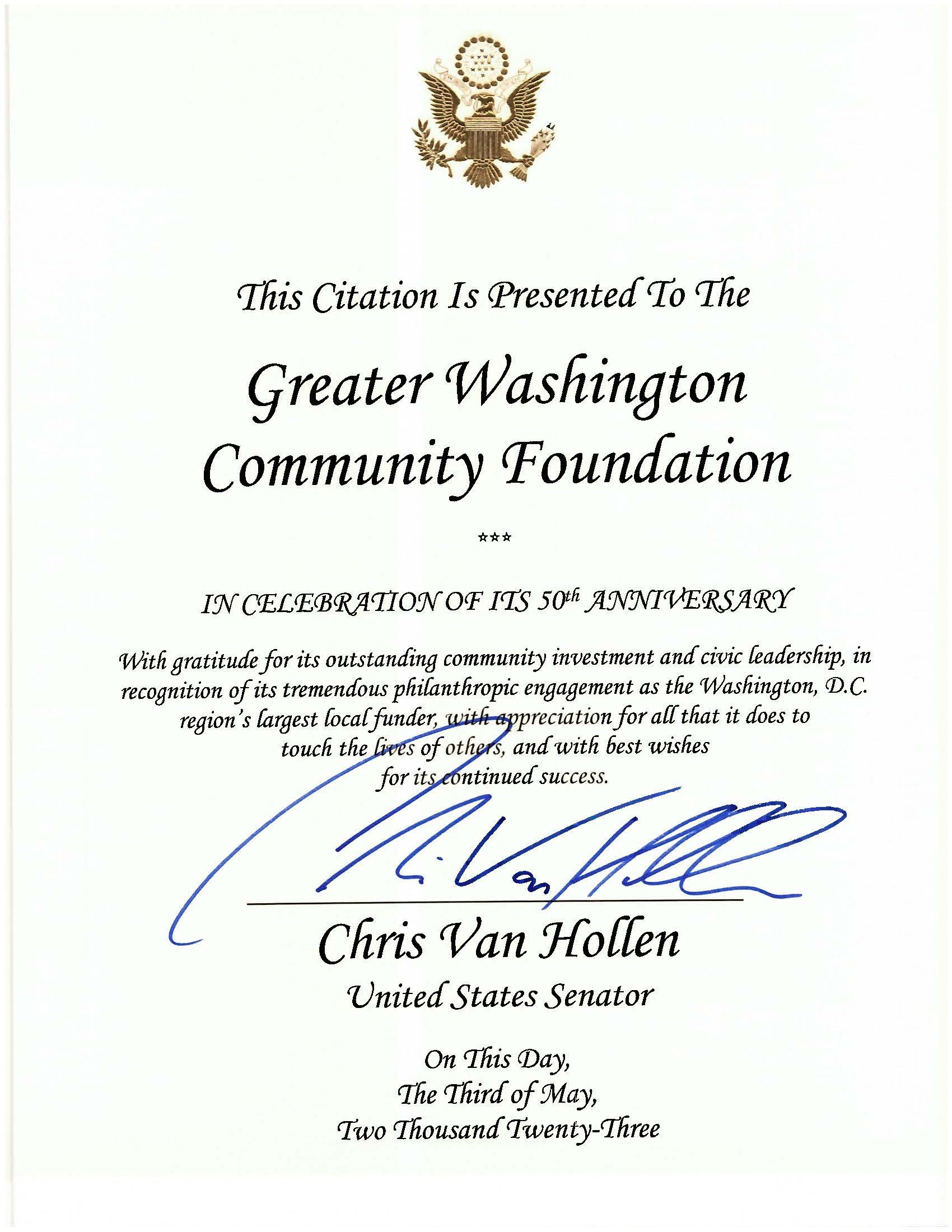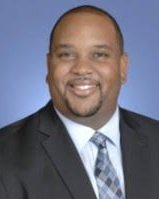In 2024, The Community Foundation is highlighting 'Leaders of the Future' - individuals and organizations who inspire us to look towards a brighter future for Greater Washington.
To kick off our "Leaders of the Future" campaign , we invited incredible Black leaders from across the region to share their experiences, including their insights into the movement for socio-economic justice.
-
What is your relationship to The Community Foundation?
I am the incoming Chair of the Prince George's County Community Foundation.
Why do you think economic justice is important?
Economic justice stands as the lynchpin of an equitable society, providing the necessary foundation upon which all other facets of social justice can thrive. It serves as the cornerstone of hope, instilling in individuals the belief that their efforts and contributions will be met with fair and just outcomes. Whether one is laboring through two jobs or pursuing an entrepreneurial endeavor, it is in the pursuit of alignment with a system that recognizes and rewards diligence and innovation. Without economic justice, the promise of opportunity and upward mobility remains elusive, perpetuating cycles of inequality and disenfranchisement. Therefore, ensuring economic justice is not merely a matter of fairness, but a fundamental prerequisite for fostering a society where every individual can fulfill their potential and contribute meaningfully to the collective well-being.
What does economic justice look like? Please describe how you or your organization promote or cultivate economic justice?
Economic justice encompasses a multifaceted approach aimed at ensuring fair and equitable distribution of resources, opportunities, and benefits within society. It involves addressing systemic inequalities and barriers to economic participation, as well as promoting policies and practices that empower marginalized communities and promote economic well-being for all.
I consider myself a pioneering figure in attempting to assure equal opportunities field of cybersecurity, I seek economic justice for the community and the nation through advocacy and actions. I understand that economic disparities can significantly impact communities, particularly those historically marginalized or underrepresented in the technology sector. Access to the Internet, to training and employment opportunities are critical for fair representation. This is important as everything will be digitized in our near future. Therefore, my efforts center on actively working to dismantle barriers to entry in the cybersecurity field, advocating for increased access to education, training, and job opportunities for individuals from diverse backgrounds.
My efforts extend beyond individual empowerment to systemic change. I collaborate with government agencies, educational institutions, and industry partners to develop initiatives that promote diversity, equity, and inclusion in the cybersecurity workforce. By advocating for policies that prioritize economic justice, such as equitable hiring practices and investment in underserved communities, I aim to create a more inclusive and resilient economy that benefits everyone.
Furthermore, I recognize the interconnectedness of economic justice with other forms of social justice. So, I actively support initiatives that address systemic issues such as racial inequality, gender discrimination, and socioeconomic disparities, recognizing that these factors intersect and compound to perpetuate economic injustice.
What does it mean to be a Black leader or to promote and cultivate Black leadership?
Fostering Black leadership involves actively addressing systemic barriers and structural inequalities that impede the advancement of Black individuals into leadership roles. The next "team" should not run into the same barriers and wall. This is done by This advocating for policies and practices that promote diversity, equity, and inclusion, while also challenging systemic racism. By making my back available to carry others who will move far beyond where my years will take the community we are carrying on a tradition started during the days of slavery.
By advocating for social justice reforms and creating more equitable opportunities for leadership and success within the Black community and society at large, we can do more than just cultivate leaders. rather, we can thrust them forward and allow the choice of paths. My conditions now will not be the ones faced by the tip of the spear five years from now. Empowering the next generation to be impactful means providing the tools and letting them use what is in the tool bag in a manner appropriate to the positive change and progress.
When you reflect on Black History in the Greater Washington region, what does the next chapter of Black History look like to you?
The forthcoming chapter of Black history in the Greater Washington region embodies a narrative of hope, progress, and collective action towards a more inclusive and equitable society. It envisions a future where the legacy of resilience and triumph among Black communities continues to inspire generations, fostering increased representation, equity, and justice across all facets of life.
The question is how do we empower the next generation to roll forward with minimal speedbumps in their path? And, what tools do we need to provide them enabling an ability to smoothly overcome challenges we are sure they will face?
The next chapter of Black history will involve the dismantling of systemic racism and the implementation of policies that promote social justice and equity for all. Success will be measured by the achievement of objectives. One of them is that Black individuals are not only recognized for their contributions to the region's history, but also for their ongoing leadership in shaping its future.
-
What is your relationship to The Community Foundation?
The Community Foundation was one of the first organizations to fund us - we have had a successful partnership with them for over 5 years.
Why do you think economic justice is important?
The main reason is because when you look at the inequality around society, most of the problems are within the top 1%. The scales are so unbalanced that greed, dysfunction, and power imbalances in society become cyclical, fueling one another. We've forgotten about the "my brother's keeper" mentality.
What does economic justice look like? Please describe how you or your organization promote or cultivate economic justice?
Economic justice looks like a fairer justice system for returning citizens by meeting all of their needs and giving them the opportunity to succeed so that we might help them see a path for themselves outside of the criminal legal space on their own, without the shackles of supervision or monitoring. It looks like pouring resources into people and removing barriers to their success and wellbeing.
What does it mean to be a Black leader or to promote and cultivate Black leadership?
Black Leadership is about owning up to past wrongs, enduring a slow ground-up approach, being a sacrificial lamb, practicing the principles of integrity, truth, and love. Leading by example without the celebrity and understanding that we have to be the change we want to see, with patience and tolerance.
When you reflect on Black History in the Greater Washington region, what does the next chapter of Black History look like to you?
Enduring strength, youth leadership, supporting and encouraging our black men. Building community and promoting a restorative justice model.
-
What is your relationship to The Community Foundation?
DC Justice Lab is lucky to have been included in two important grant-making programs from the foundation. When we were first getting up and running, we received funds to help with our operational costs and capacity building. Last year, we were selected as part of its groundbreaking deep investment into local policy advocacy and systems change, under the Health Equity Fund.
Why do you think economic justice is important?
People who live in Georgetown live an average of 27 years longer than people who live in Anacostia. Many of the social determinants of health are impacted by seismic income and wealth disparities in our city.
What does economic justice look like? Please describe how you or your organization promote or cultivate economic justice?
DC Justice Lab is promoting economic justice by combatting the criminalization of poverty and fighting for reparations for Black Washingtonians.
What does it mean to be a Black leader or to promote and cultivate Black leadership?
Finding new strategies for civic participation and political education has been the most rewarding part of our recent work. We are investing in Black-led organizations through our Policy Training Academy, preparing future movement lawyers through our DC Justice Fellow program and Policy Advocacy Competition, and teaching community members how to change systems through our DC Justice Library. We know that positioning people to step into and fully express their own power is more transformative than anything we could do alone.
When you reflect on Black History in the Greater Washington region, what does the next chapter of Black History look like to you?
The next chapter of Black History looks like Black Unity. After two generations of dividing our communities based on poverty and subjugating people who have been system-involved, it is time for a unified pro-Black movement for changing and dismantling institutions that harm us.
-
What is your relationship to The Community Foundation?
Interfaith Works (IW) and the Greater Washington Community Foundation serve as strategic partners. Primarily, the Community Foundation supports our emergency financial assistance program, Connections. Additionally, IW and The Community Foundation are co-hosting a Faith and Philanthropy forum on February 27, with a specific focus on economic justice in Montgomery County.
Why do you think economic justice is important?
Economic equity ensures that our neighbors in Montgomery County have an opportunity to earn a livable wage sufficient to live without public assistance like rental subsidies, SNAP, or other government cash assistance.
What does economic justice look like? Please describe how you or your organization promote or cultivate economic justice?
Interfaith Works has been serving people who experience poverty for 52 years. Last year, we served 35,000 Montgomery County residents. Our programs are centered around removing systemic and economic barriers that prevent residents from achieving stability and thriving. Sadly, there are deeper systemic challenges that must also be addressed. In Montgomery County, one must earn $35/hr to afford an average two-bedroom apartment. This is out of reach for many in Montgomery County, where the minimum hourly wage is $16.70. This disparity explains the surge in demand that Interfaith Works has seen for our shelter, supportive housing, food and clothing distribution, emergency financial assistance, and job placement services.
While our programs have been expanded significantly to meet the demand, the need continues to grow. At the macro level, IW hosts forums on critical issues like homelessness, affordable housing, and food insecurity. We also routinely engage with elected officials and business leaders to ensure they remain aware of the difficulties faced by our clients. Through these efforts, we help ensure that the community remains engaged with solutions to the challenges affecting our neighbors.
Recently, Interfaith Works launched a collaboration with a data analysis firm to understand better the conditions in our community that cause the continued need for our services. While we do not yet have firm answers, we are certain that solutions will center around economic justice.
What does it mean to be a Black leader or to promote and cultivate Black leadership?
I have the privilege of leading Interfaith Works, a 190-person nonprofit organization that serves 35,000 people each year who experience poverty. In Montgomery County, Black people disproportionately experience poverty, relative to the population size. As CEO, I work with our dedicated team to ensure that these services reach the people with the greatest need and that clients are treated in an equitable and dignified manner. I also support Black leaders in the County as Board Treasurer for The Montgomery County Black Collective. The Collective creates space for underrepresented businesses to access resources that have long been unavailable to the Black community – a barrier that has prevented many from achieving economic security.
When you reflect on Black History in the Greater Washington region, what does the next chapter of Black History look like to you?
In the wake of recent stories about workplace racism, I am concerned that some Black professionals may avoid leadership opportunities for fear of being mistreated. This trepidation is legitimate. Unfortunately, when Black leaders are missing from the table, they cannot influence decisions and their unique viewpoints are not represented. This has a direct effect on the broader Black community and can affect how information and resources are distributed.
For the next chapter of Black History to be bright, businesses in the Greater Washington community must double down on efforts to create nurturing work environments. It is also crucial that we lead the way in addressing workplace maltreatment, which is experienced by too many Black employees. Taking these steps will help ensure that our community is enhanced for everyone.
-
What is your relationship to The Community Foundation?
The BBC is a recipient of funding from the Community Foundation to support our mission of addressing systemic barriers in public education.
Why do you think economic justice is important?
Economic Justice empowers marginalized people and communities to be self reliant and productive participants that creates social mobility, independence and prosperity across generations.
What does economic justice look like? Please describe how you or your organization promote or cultivate economic justice?
Education is proven enabler of social mobility and economic prosperity, so our focus has been on dismantling systemic barriers in public education that limit access to resources and opportunities for Black, Brown, and students from low income families.
What does it mean to be a Black leader or to promote and cultivate Black leadership?
Effective Black leadership is fully cognizant of the diverse historical, cultural, and social fabric that makes up Black communities, and the many racially motivated challenges we’re still facing. However, building relationships to forge new pathways and create mutually beneficial solutions with other communities is critical to making progress.
When you reflect on Black History in the Greater Washington region, what does the next chapter of Black History look like to you?
I believe we are at a critical inflection point. Our traditional Black institutions have been weakened, and the community values that protected and helped us make progress together for generations are waning. The trajectory of next chapters of Black History will depend on how effectively we collaborate with like-minded people, especially in ensuring our children have access to a high-quality education that prepares them to compete globally and build economic justice and prosperity for our communities.




